May 5, 2025 – Buddha’s Birthday Celebration Ceremony, Dharma Talk for Social Leaders
Hello everyone. Today marks the 2569th Buddha’s Birthday according to the Buddhist calendar. There was a public celebration this morning, followed by a special ceremony this afternoon for social leaders.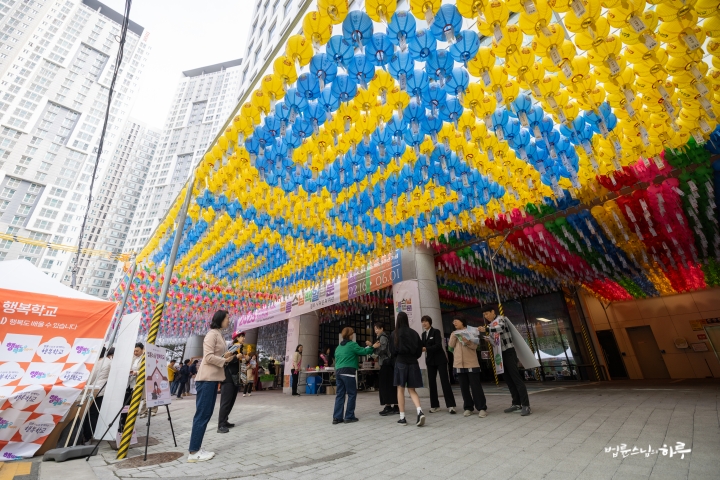
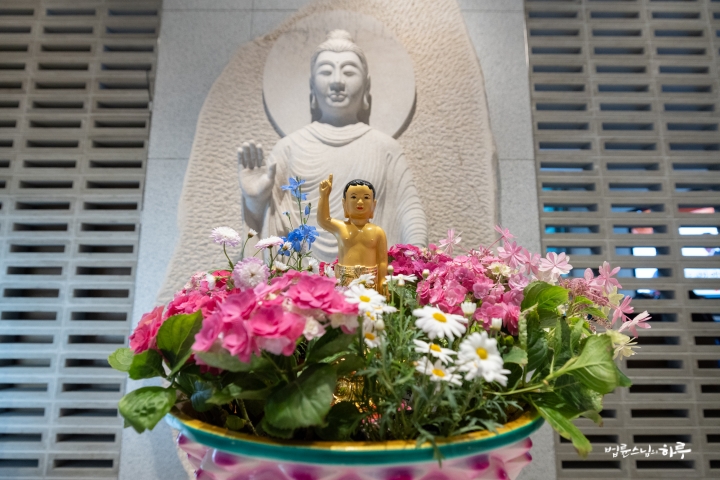
After completing the morning practice and meditation, Sunim began the first part of the Buddha’s Birthday celebration ceremony at 9 AM. The first part was a memorial service where offerings were made to the Buddha, and the joy was dedicated to the spirits of ancestors who have passed away, praying for their rebirth in the Pure Land. Jungto Society members connected online as the memorial service was properly conducted, and the second part began at 10 AM.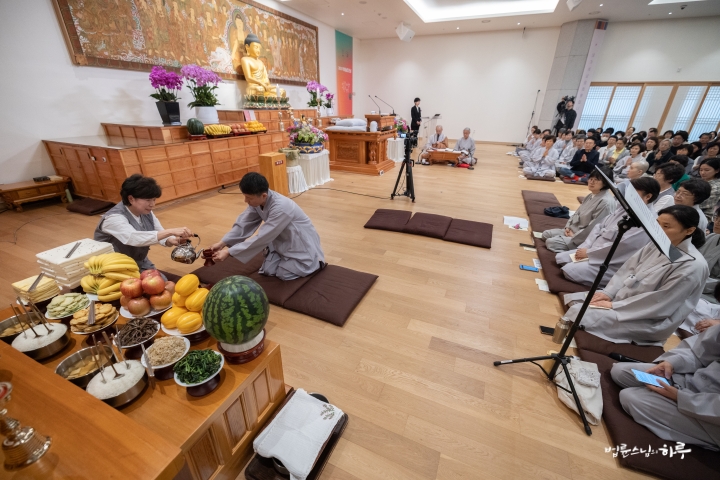
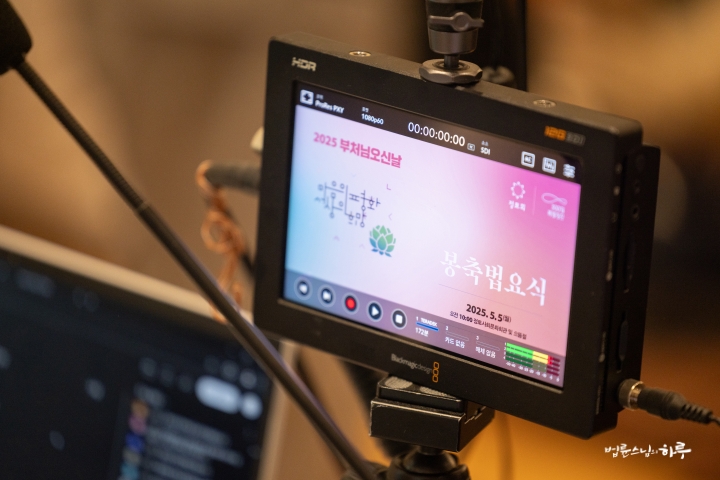
About 1,400 Jungto Society members gathered at the Dharma Hall on the third floor, the basement auditorium, and the first-floor lobby of the Jungto Social and Cultural Center. Around 3,300 more members at main temples both domestically and internationally participated by watching the live broadcast of the celebration ceremony. Additionally, all those who participated in the lantern donation watched the live broadcast online from their homes.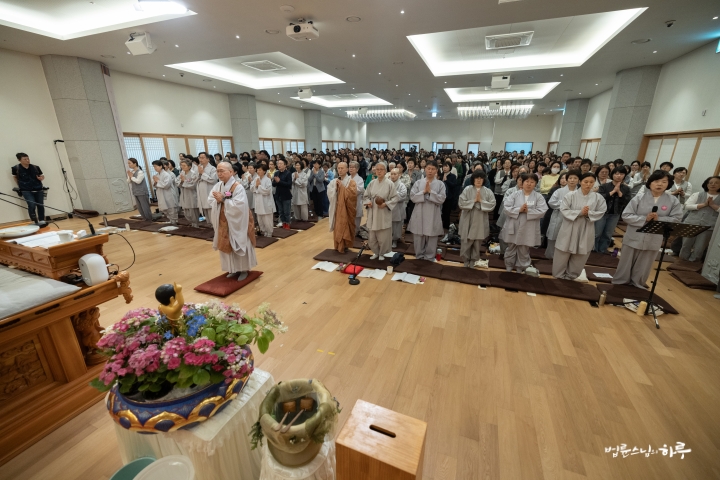
Sunim began with the bell-ringing ceremony and offering ritual, followed by the recitation of the Three Refuges and the Heart Sutra. First, Venerable Pomnyun Sunim offered incense before the Buddha, praying for the liberation of all sentient beings.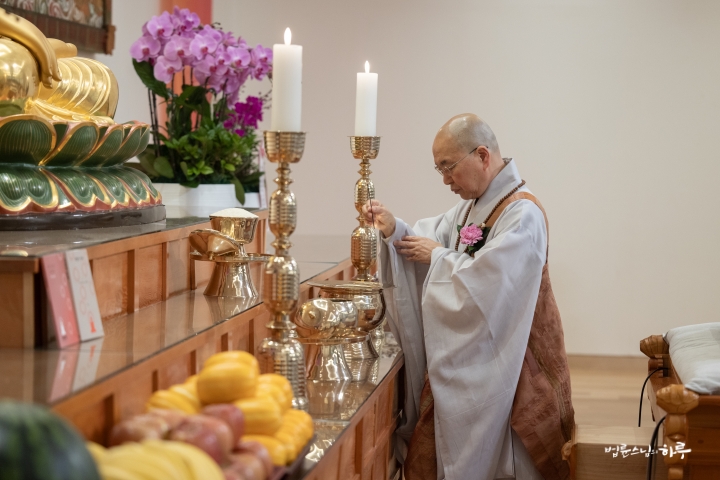
Next, representing children who are the hope of humanity and future leaders of the world, Jung Euden and Hwang Yunseul offered lanterns to illuminate the Buddha’s sanctuary, praying for profound wisdom.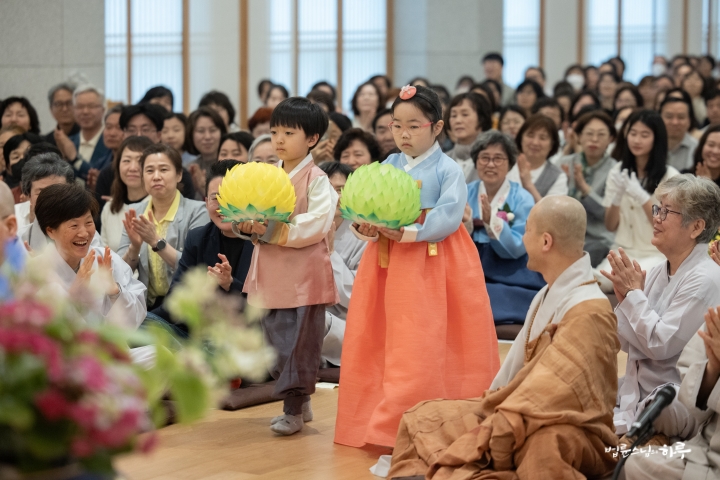
Following them, Kim Dohyung, the youngest group leader from the Youth Division who will lead the future of Jungto Society, and Jung Jiwon, a co-facilitator, offered flowers before the Buddha in praise.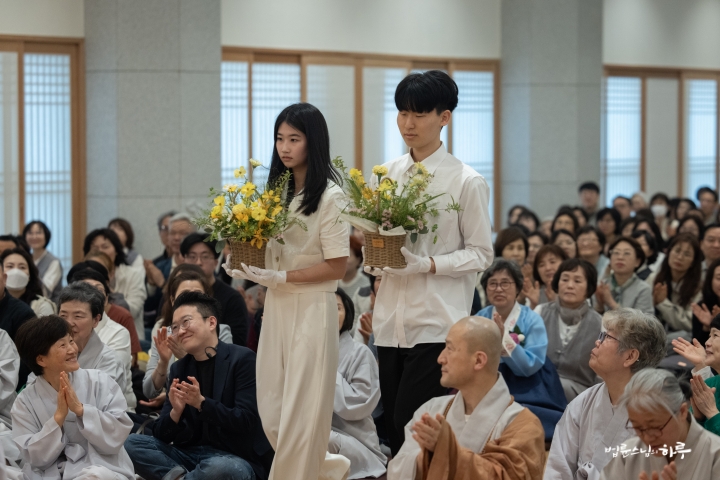
We sincerely hope that the future of spreading the Dharma will become as bright as the children’s lanterns and the vibrant flowers offered by the Youth Division members, and that the global propagation of the Dharma will proceed with even greater strength.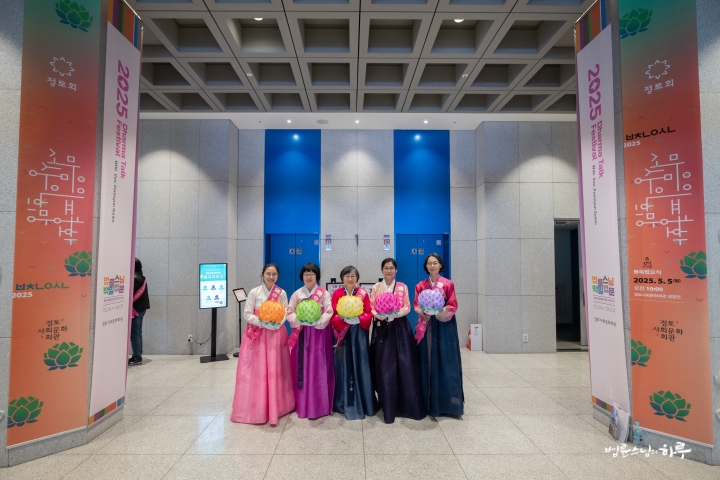
Next, we watched a video of Buddha’s Birthday greetings from Jungto practitioners at main temples across the country and around the world. This year was especially meaningful as religious leaders of various faiths, including pastors, priests, bishops, and religious ministers, shared video greetings.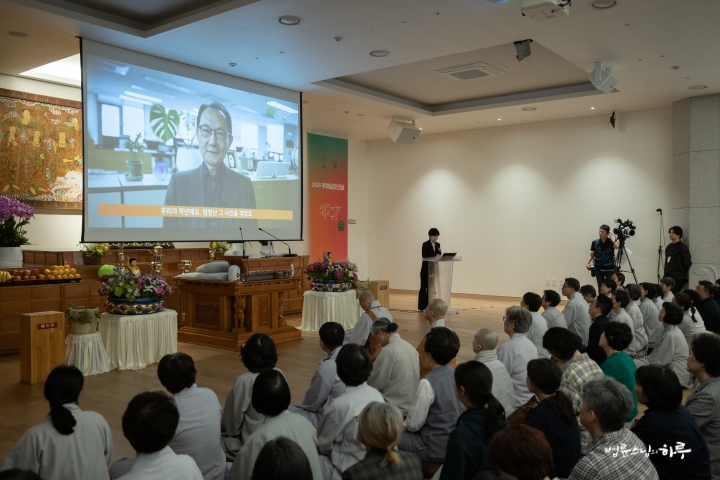
“At the end of last year, the country was in turmoil due to the December 3rd martial law crisis. As a result, Christians observed Christmas in a somber mood. Fortunately, with the Constitutional Court’s ruling this spring, that issue has been somewhat resolved. I’m glad that this Buddha’s Birthday can be celebrated more joyfully. What’s important is that despite our different religions, we must work together to shape the destiny of this nation. Let’s cooperate in creating a Pure Land in this world.” – Senior Pastor Park Jonghwa, Kyungdong Church
“More and more people are saying that the world is becoming increasingly difficult to live in. In times like these, I hope that you will follow the teachings of the Buddha, while I follow the teachings of Jesus, and together we can make this world a better place to live. May God’s grace and blessings be upon all of you, and may the happiness that comes from the Buddha’s teachings fill your homes.” – Bishop Park Kyungjo, Anglican Church of Korea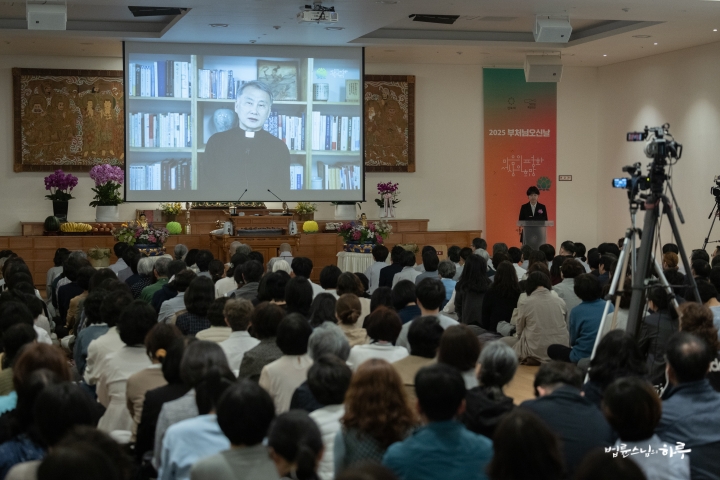
“This morning, I had an interesting conversation with Sunim about heaven and hell. What we in Catholicism call heaven seems to be what Buddhism calls the Pure Land. I believe that guiding our country in the right direction is creating a Pure Land. Let’s build this Pure Land together.” – Father Kim Hongjin, Catholic Archdiocese of Seoul
“Today, Korean society is suffering from conflict and division, causing many people heartache. The Buddha brought a warm breeze of great compassion. I hope that Buddha’s Birthday becomes a day when we pledge to practice respect and consideration, and walk the path where everyone can be happy together.” – Kim Daeseon, Won Buddhist Minister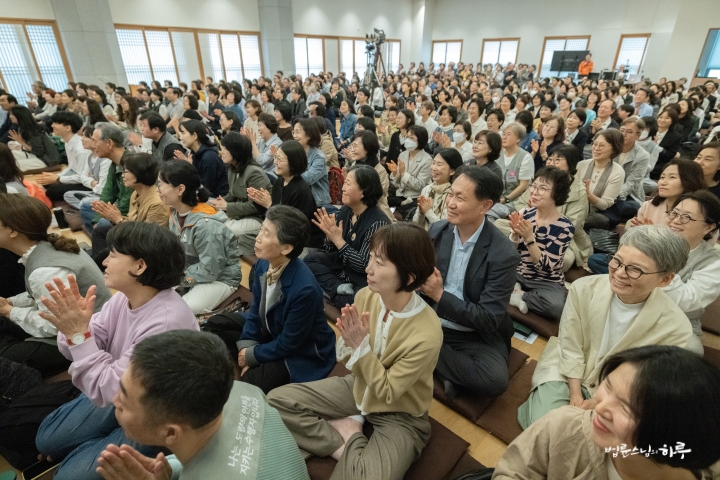
Next, we watched congratulatory videos from actors Jo Insung, Lee Jungeun, and other broadcasting and cultural artists, as well as from Jungto practitioners around the world.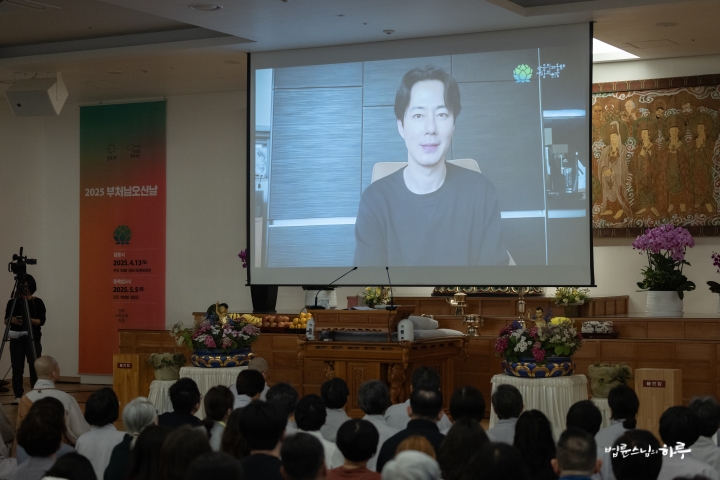
Then, all participants performed three full bows to request the Dharma from Sunim. Sunim spoke about the significance of the Buddha’s coming to this world and what we should do today to carry on his legacy.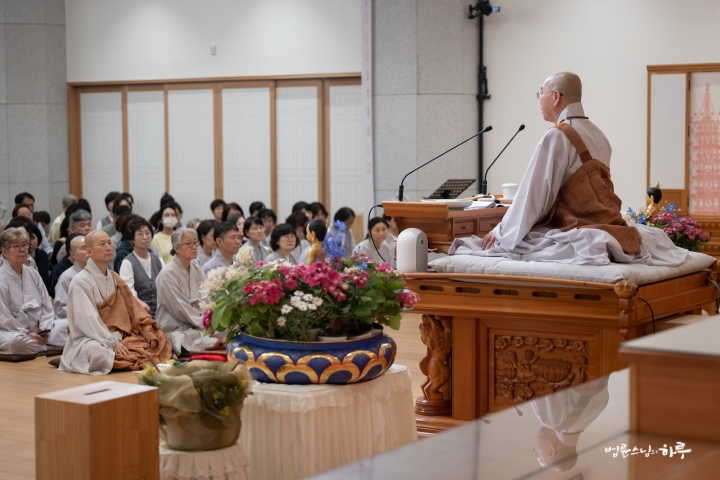
“Today is Buddha’s Birthday, the 2569th year of the Buddhist calendar. It is the day when Shakyamuni Buddha was born, becoming a bright lamp for sentient beings lost in darkness and teaching the path to liberation from suffering.
Many Jungto Society members have raised donations from people around them in celebration of Buddha’s Birthday. These sincere contributions are providing warm bedding and clothing to the poor and needy around the world, food to the hungry, and medicine to the sick. They are also establishing places of learning for children who cannot receive education. The Buddha said that there are four acts that generate the same merit as making offerings to him in this world where he is no longer present: feeding the hungry, caring for the sick, helping the poor, and comforting the lonely.”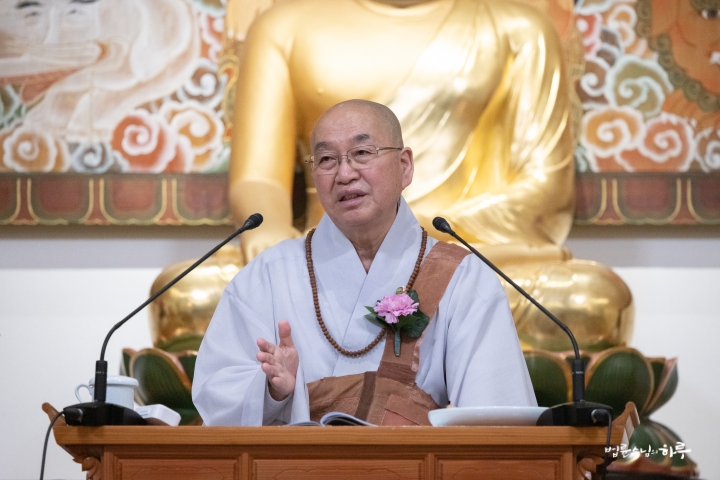
On Buddha’s Birthday, Whose Suffering Are We Ignoring?
Fortunately, today we don’t have to worry about hunger, and even when we fall ill, we can receive medical treatment. Though our lives may not be abundant, we are able to live independently and self-sufficiently. However, throughout our society, there are still people struggling to survive in places we may not be aware of. There are many who live in isolation, such as foreign workers, ethnic Koreans from former Soviet states, and North Korean defectors. Globally, the situation is even more serious. Many people suffer from food shortages, lack access to clean drinking water, and live without basic living conditions.
The hungry should be fed by those who are full, and the sick should be cared for by those who are healthy. Children should be looked after by adults, the elderly should be cared for by the younger generation, and those with education should share their knowledge with those who haven’t had the chance to learn. This is the rightful path that people should follow. In this sense, I pray that the merit of the lanterns we light today becomes a field of blessings (bokjeon) for those in need. 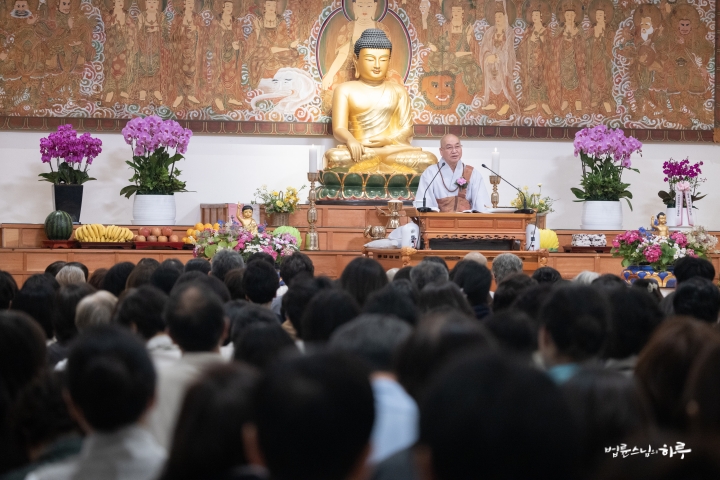
Why the World Feels Chaotic Right Now
Looking at today’s international situation, confusion and concern are growing because those who should maintain their proper positions are failing to fulfill their responsibilities. The United States, which has led the world order and maintained peace, is now causing great chaos by breaking down the very order it established. When those without power violate order, those with power can correct them, but when the powerful themselves break the order, there is practically no adequate solution. Eventually, people start to believe that might makes right, and force becomes the default solution. This is the greatest threat to today’s international order.
The domestic situation is not much different. The president, who should be at the forefront of upholding the constitution and laws, instead tried to resolve issues through force while disregarding them. Because of this, our society has experienced great confusion over the past few months, and it continues today. It’s time to move away from force and restore legal order through accountability and reform. Nevertheless, some still refuse to acknowledge their wrongdoings and insist they are right while expressing anger. Additionally, some with a majority of seats reject court rulings that don’t align with their intentions. Whether in international or domestic society, if those with power do not abide by the law, the world will inevitably drift toward a survival-of-the-fittest reality, and chaos will only increase. 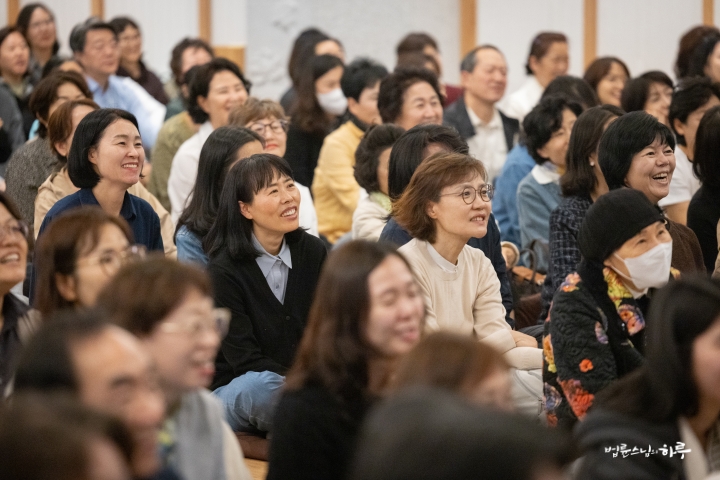
During the recent impeachment crisis, some senior members of the National Assembly publicly called for the destruction of constitutional institutions like the Constitutional Court and the judiciary. These officials, who receive salaries from taxpayers’ money, openly advocated for breaking the law in public. What’s even more concerning is that many citizens support those who deny the constitution if they’re on “their side,” and oppose those who uphold it if they’re not. If this is the case, we can no longer call ourselves true citizens in the genuine sense. Citizens are not followers of specific political parties; they are the rightful owners of this country. Political parties should seek support from citizens and govern through the authority delegated by them. However, the situation is now reversed. Leaders elected by citizens act as if they are the masters, and National Assembly members, who should represent the people, treat their supporters like subordinates. If we follow such behavior without criticism, we can no longer claim to be sovereign citizens who own this country.
Whether you identify as conservative or progressive doesn’t matter. What matters is whether you respect the constitution and the rule of law. Anyone who denies these principles is not qualified to represent citizens as a National Assembly member, manage state affairs as a minister or vice minister, or take responsibility for governing as president. The reason we are experiencing mental confusion now is not because of any special global event, but because those in power are not preserving the existing order—they are destroying it. 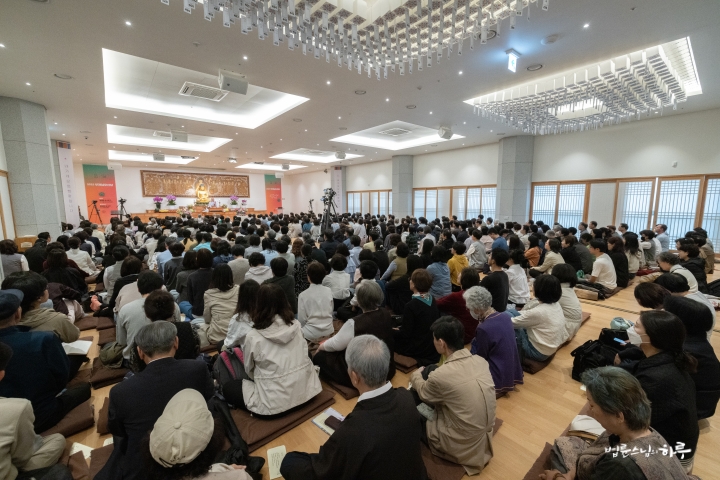
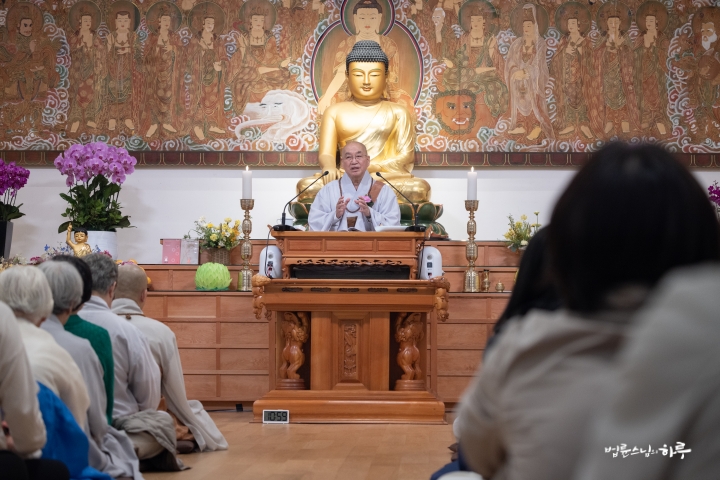
Why Buddha’s Teachings Remain Relevant in Times of Confusion
In fact, a similar situation existed during Buddha’s time. Historically, that era also saw the collapse of existing ethics, morals, and social customs. Those in power invaded other countries with military force, while wealthy elders pursued all kinds of pleasures based on their enormous wealth. Even intellectuals fell into “distorting knowledge to flatter the powerful,” currying favor with rulers and corrupting scholarship. It was truly an era of confusion. It was in such times that Buddha came to the world and offered the right teachings. First, Buddha helped people open their eyes to wisdom. He guided them to live their lives correctly without being swept away by the world’s chaos. Buddha showed suffering beings who had lost their true nature and conscience how to live without suffering. That’s why Buddha’s teachings are expressed with the following metaphors:
“Like raising up those who have fallen, like uncovering what has been hidden, like lighting a lamp in the darkness of night.” 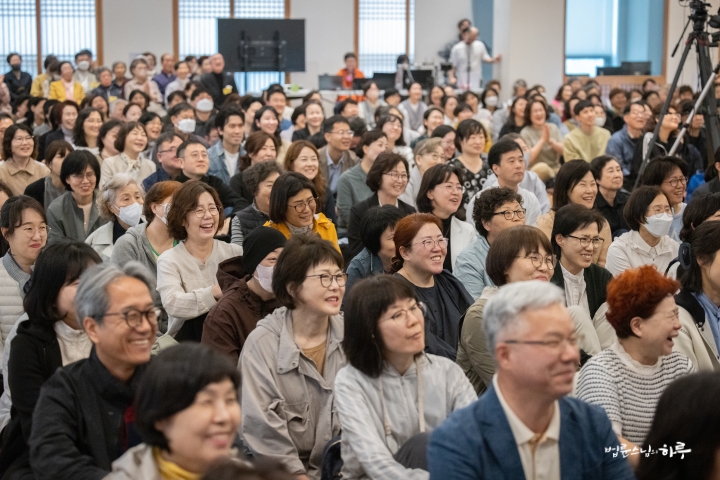
Second, the Buddha taught the message of peace. The rulers of that time tried to solve all problems only through force, constantly waging wars. In such an era, the Buddha spread teachings of peace. He clarified that the caste system and gender discrimination that oppressed and discriminated against humans were not orders created by God. Rather, they stemmed from human foolishness, and he abolished such discrimination. He also always extended a compassionate hand to the poor and suffering, enlightening them so they could escape from their suffering.
When we reflect on the Buddha’s life and teachings, no matter how great our confusion today may be, it would be difficult to say it is worse than that era. No matter how difficult things are now, they are likely less difficult than those times. Young people today may say they have no hope, but compared to the wandering of youth in those days, we might still be better off. Therefore, we must open our eyes to wisdom by following the right Dharma taught by the Buddha. We should not try to solve any problem by force, but through dialogue and compromise. If issues still cannot be resolved, they should be addressed based on laws established through social consensus. Even if something doesn’t align with our wishes and feels somewhat unfair, we must be able to accept it initially. If we try to go beyond that, we ultimately have no choice but to resolve problems through violence, and violence only leads to greater harm. 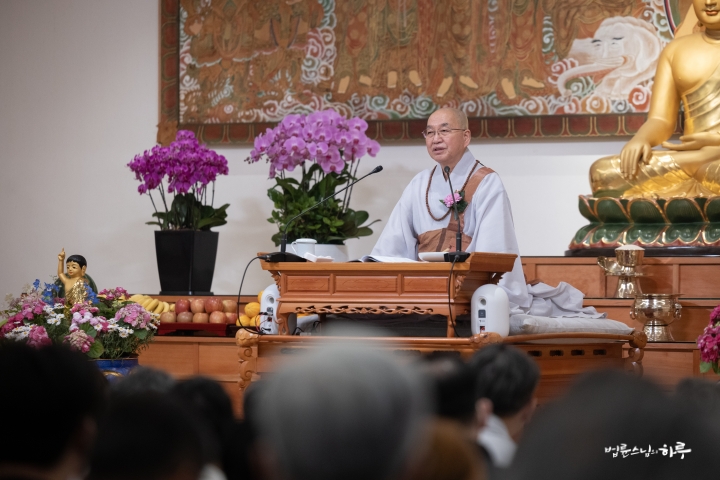
Why Would You Shed Precious Blood for Insignificant River Water?
There is a story about how the Buddha peacefully resolved a conflict. One day, farmers living near a border tried to divert river water for their crops, which led to a dispute that escalated to the brink of war. Seeing this, the Buddha asked the people:
“Which is more important, river water or the blood flowing in your body?”
The people replied, “Blood is more important. How can insignificant river water compare to blood?” The Buddha then asked:
“Then why would you shed precious blood like water to obtain that insignificant river water?”
Upon hearing these words, the people finally realized they had been acting foolishly due to their emotions. As they reflected and repented, they were able to resolve their conflict peacefully.
Why Is Korean Society Falling Deeper into Conflict?
Why are conflicts in Korean society worsening today? Perhaps it’s because we don’t have someone with the spiritual power of the Buddha. However, a more fundamental reason is that we refuse to listen to truthful words that could awaken us from our foolishness. With closed ears, we cling to small benefits and end up committing regrettable actions. For example, our individual desires for convenience and pleasure have resulted in a climate crisis that threatens humanity and all living beings. To solve this crisis, we need to move away from consumerism and live with restraint, even if it means some discomfort. Solutions exist, but the problem remains unresolved because no one is willing to choose that path. 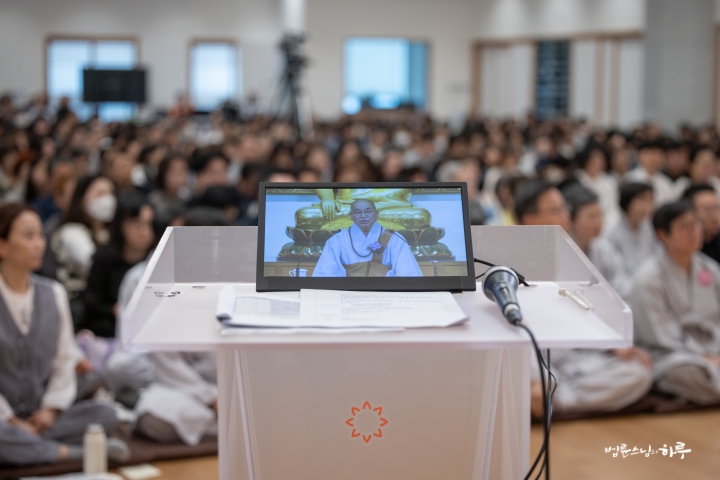
Similarly, today’s social conflicts could be resolved if each citizen would come to their senses, respect the rule of law, and make rational efforts to solve problems. However, once caught up in emotions, people view situations from the perspective that “I am right, and others are wrong,” causing minor issues to escalate into conflicts that could lead to war. Reflecting on the December 3rd martial law crisis, we see how state power was mobilized to cover up personal issues, military confrontation was provoked to justify actions, and even the potential for loss of life was seen as justifiable. When driven by short-term gains, people take reckless actions that plunge society into chaos. This is like a child playing with fire without understanding the consequences. What’s more troubling is that this kind of thinking is spreading across society. As thinking becomes increasingly biased, multiple complex problems arise.
On this Buddha’s Birthday, we must reflect on the Buddha’s teachings and examine ourselves. All of us living together within South Korea must cooperate despite differences in religion, ideology, thought, and political affiliation. We must not let emotions cloud our judgment. Even with hostile tensions between North and South Korea, cooperation is better at the national level. The same applies to relations with Japan. Despite past hostilities, we must work with Japan to navigate today’s U.S.–China rivalry. We need to join hands with North Korea and cooperate with Japan when necessary. But if we treat each other as “targets for elimination” within South Korea itself, how can this country move forward properly?
Moving Beyond Extremes to the Middle Way: Opening an Era of Cooperation
We have now overcome a major crisis. Going forward, we must pursue cooperation rather than confrontation. We should adopt an attitude of healthy competition that benefits everyone. Only then can we find our path within the new international order led by the US President.
In this context, on Buddha’s Birthday, I urge you: if we are disciples of the Buddha, we must not forget the teaching of the Middle Way. At the very least, we should avoid extreme thinking. I don’t expect perfect wisdom, but I hope we can avoid leaning too far to one side. 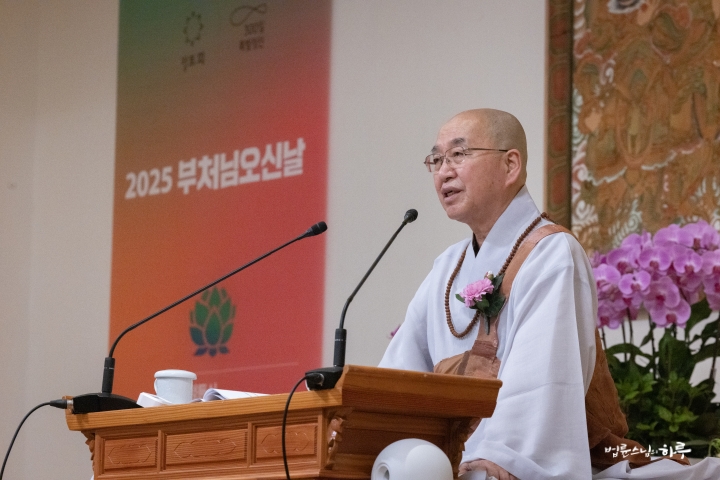
With only one month left until the presidential election, we must pray earnestly during this time. We need to maintain a clear and proper mindset. We must carefully consider what kind of leader can preserve peace, restore stability, achieve national unity, and ensure that such turmoil never repeats itself through constitutional reform. Please make sure to vote and pray for the stability of our nation. Didn’t we change the energy of heaven and earth through our June 13th Great Dharma Assembly last year? Once again, I hope we can all unite in prayer for stability after the election. On this Buddha’s Birthday, I wish you all health and happiness.”
Next, Sunim led the celebration of Buddha’s birth with a chant of praise. As Sunim led the chant, the congregation followed with the recitation.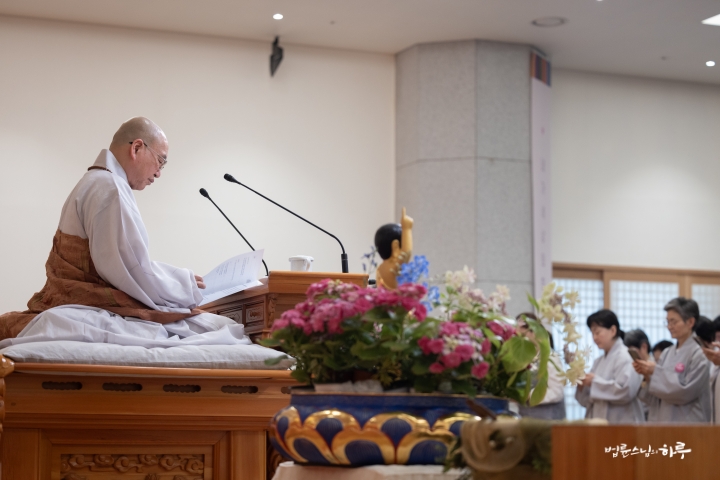
“At the southern foothills of the Himalayas, the highest peak in this world, where the Rohini River flows, in the peaceful land of the Shakya clan, known as descendants of the Kapila Kingdom, beneath an Ashoka tree in the Lumbini Garden, the Bodhisattva was born from the right side of his mother, Queen Maya….” 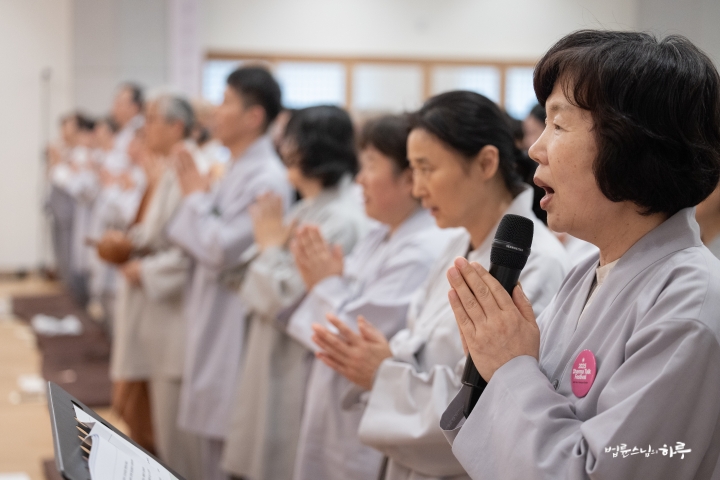
Following this, everyone sang the Buddha’s Birthday song together and performed the bathing ceremony. This ceremony involves bathing the baby Buddha. First, following Sunim’s guidance, Queen Maya entered, performed the bathing ritual, and received the blessing of touching the crown (Majeongsugi, 摩頂授記).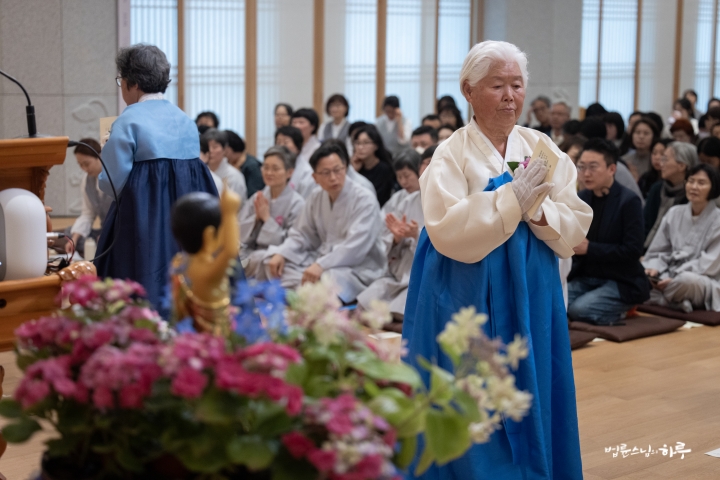
According to Indian tradition, there is an eye of enlightenment between a person’s two eyes. Majeongsugi is receiving the prophecy that “By opening your eye of enlightenment, you will become a Buddha in the future.”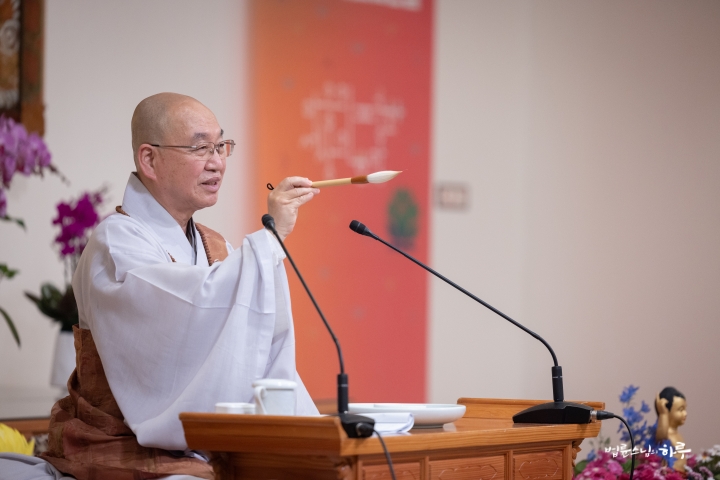
“Those watching the ceremony online, please bring your face close to the monitor. I will perform the Majeongsugi blessing online. May you become a Buddha in the future.”
Sunim offered the Majeongsugi blessing to those joining online.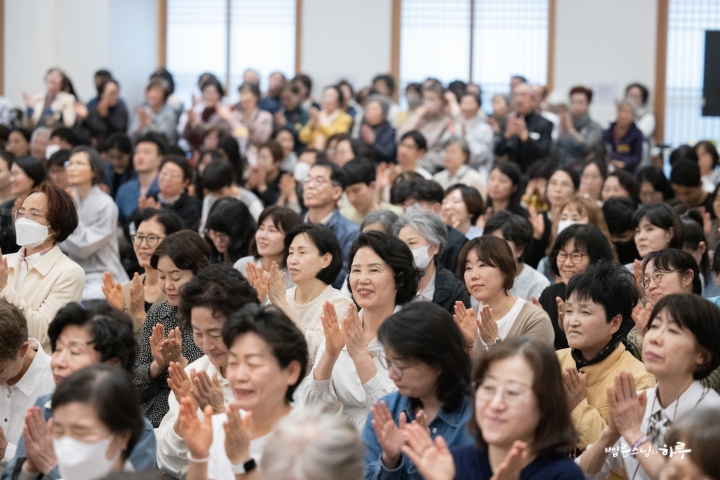
Next, after making the birth proclamation together, everyone recited the aspiration prayer, wishing that we all may follow the path to enlightenment and liberation.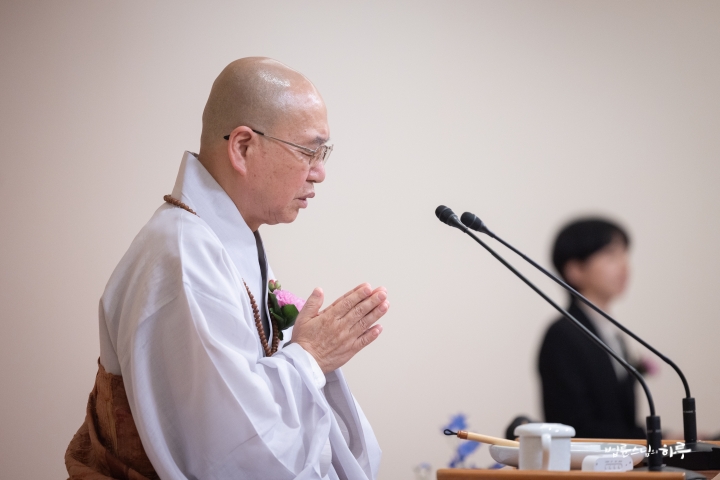
Finally, after hearing the greeting from the President of Jungto Society and reciting the Four Great Vows, the second part of the Buddha’s Birthday ceremony broadcast concluded. Following this, all participants at the venue performed the bathing ceremony and received the Majeongsugi blessing.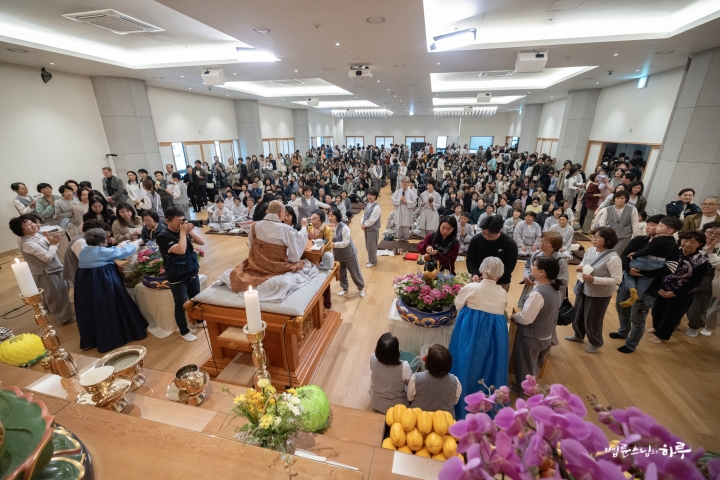
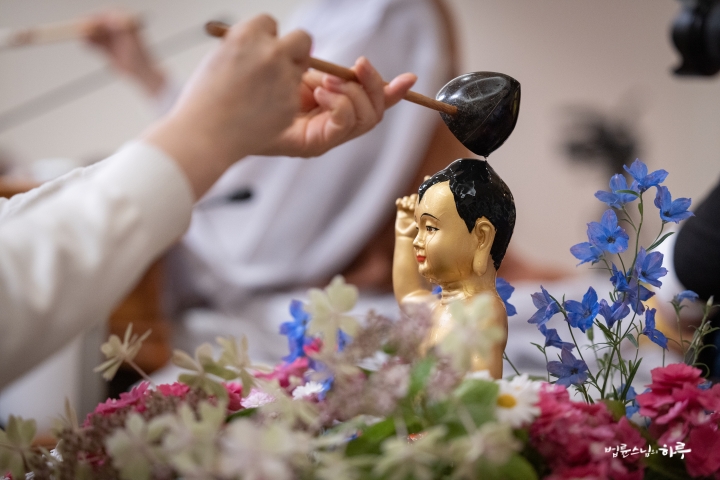
Parents carrying young children, elderly people with graying hair, elementary school children—people of all ages and genders—stood in a long line to bathe the baby Buddha and receive the Majeongsugi blessing from Sunim.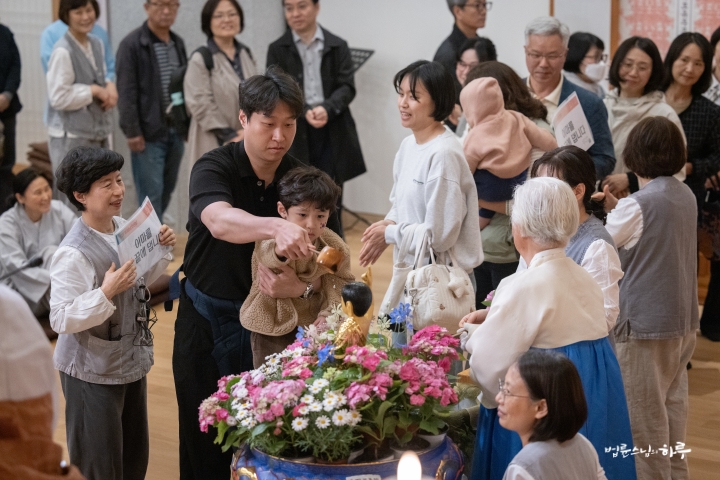
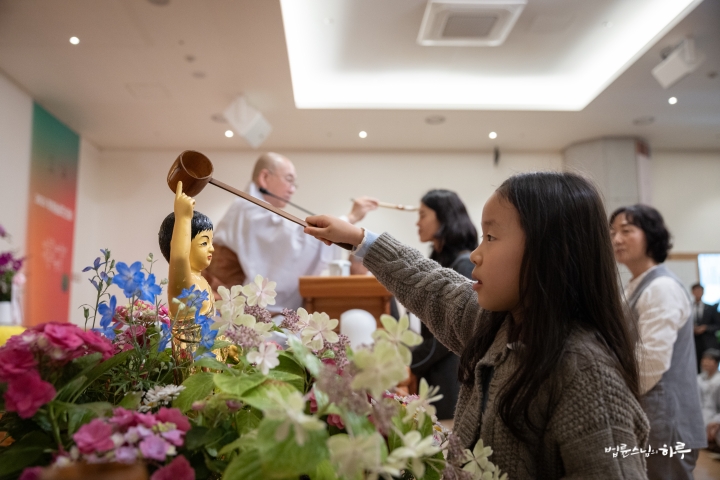
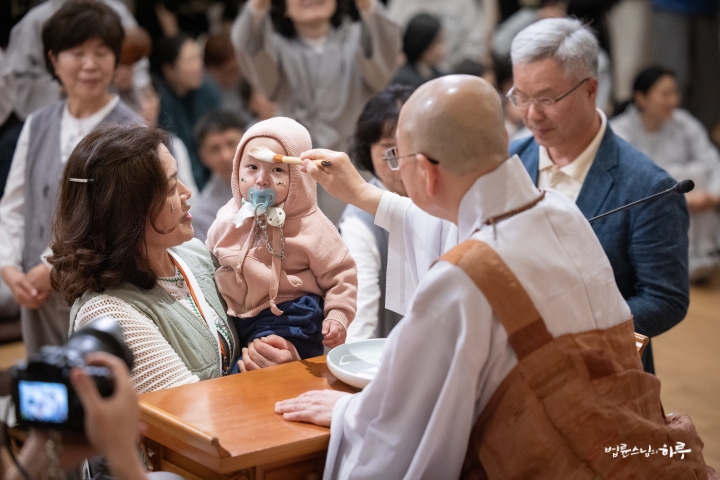
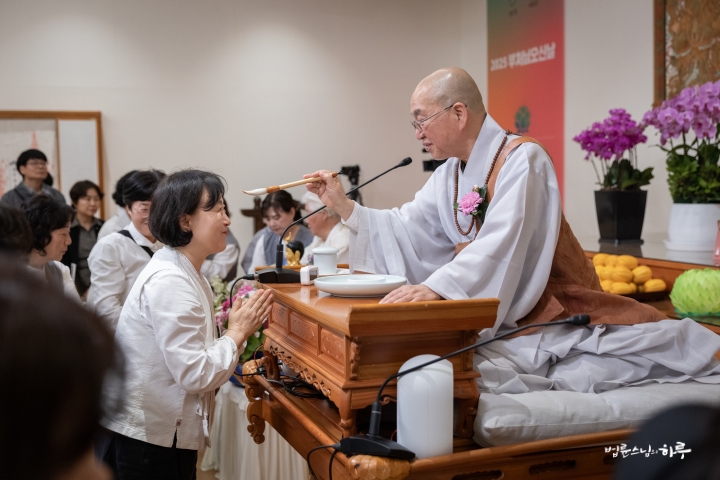
After giving the Majeongsugi blessing to 1,400 people, Sunim descended from the Dharma seat.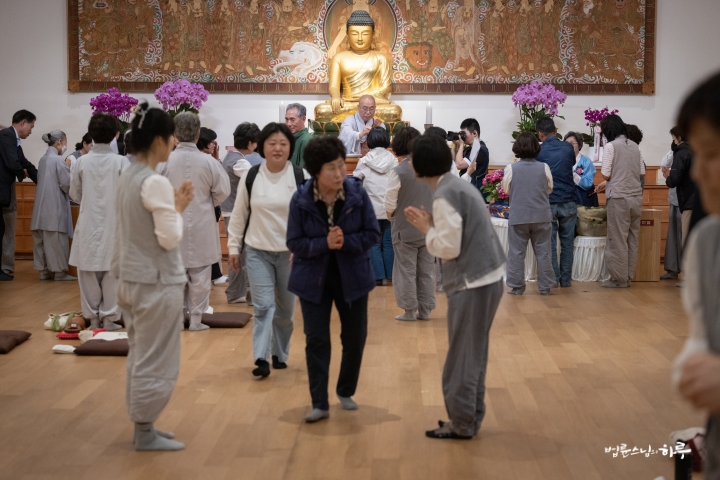
Lunch began shortly afterward. Many volunteers had worked hard for days to prepare bibimbap for 1,400 people. In the basement dining hall, fourth-floor auditorium, and fifth-floor auditorium, many people lined up to receive bibimbap and enjoy their lunch.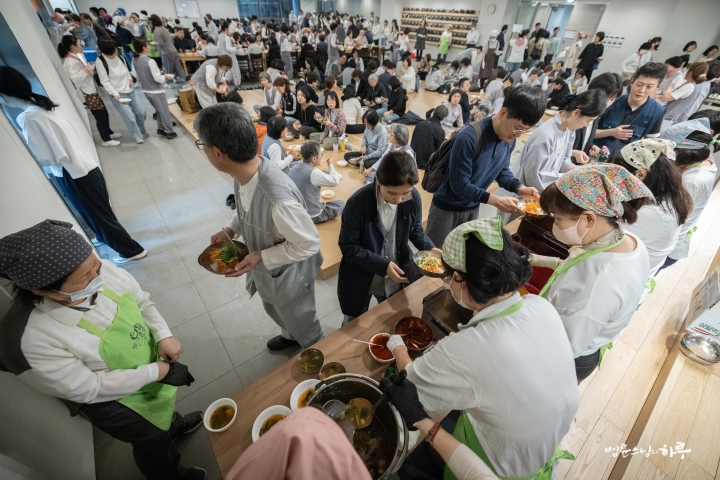
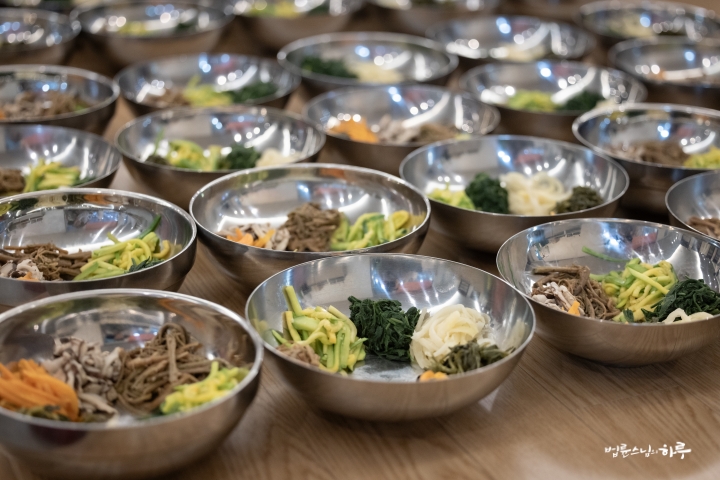
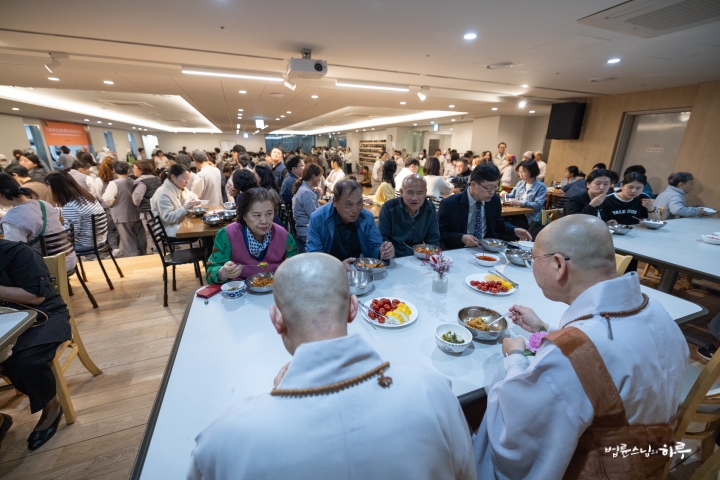
After a short break, Sunim began welcoming guests again from 2 PM. Various booths for members to participate in were set up in the courtyard of the Jungto Social and Cultural Center.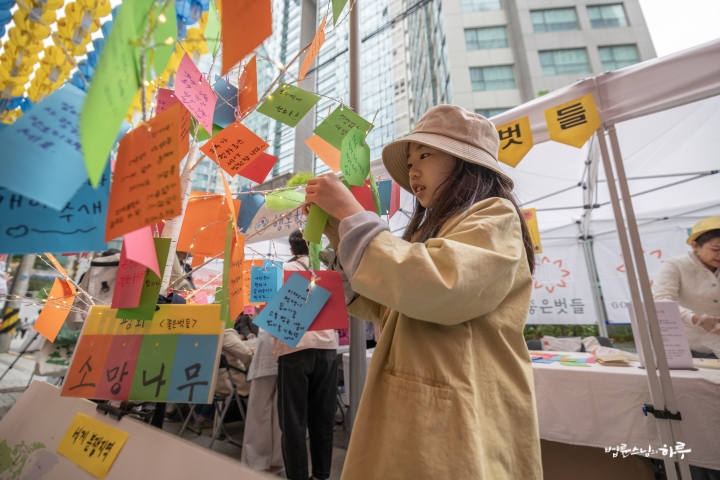
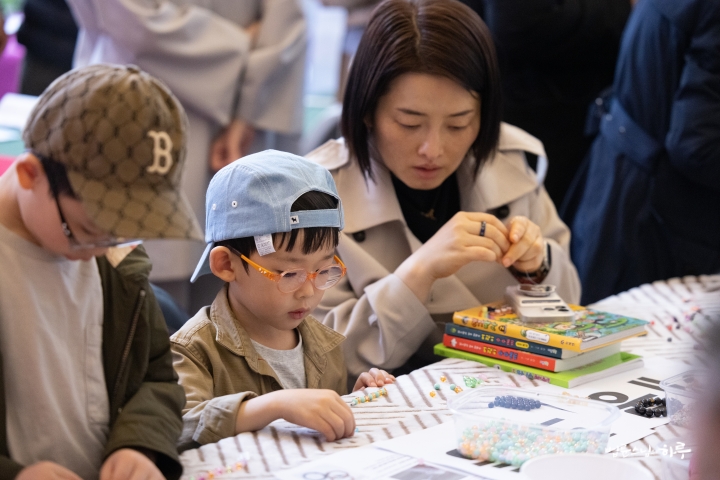
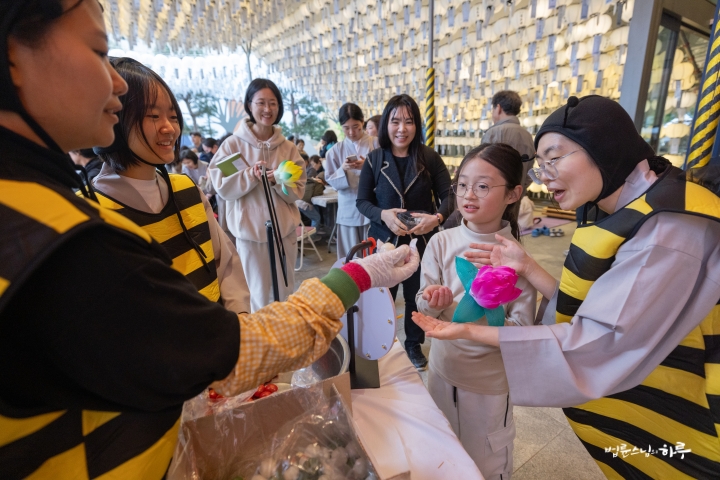
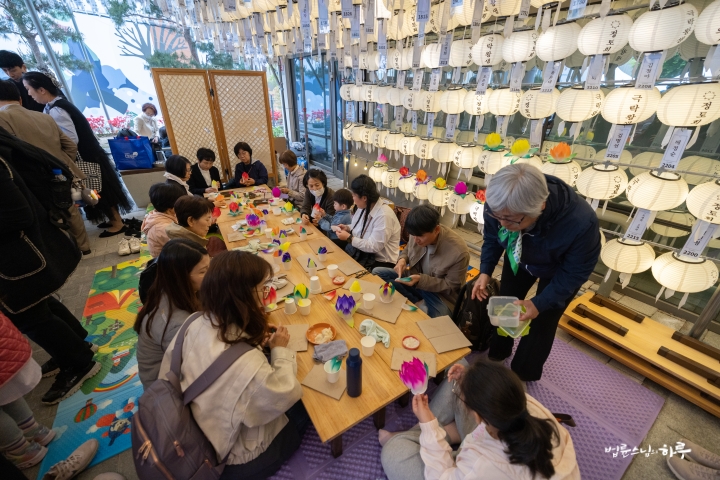
Every year on Buddha’s Birthday, Jungto Society holds a celebratory Dharma ceremony with leaders from neighboring religions and social dignitaries to reflect on the true meaning of Buddha’s birth. In the basement dining hall, social dignitaries and religious leaders who arrived early sat at tables engaged in conversation.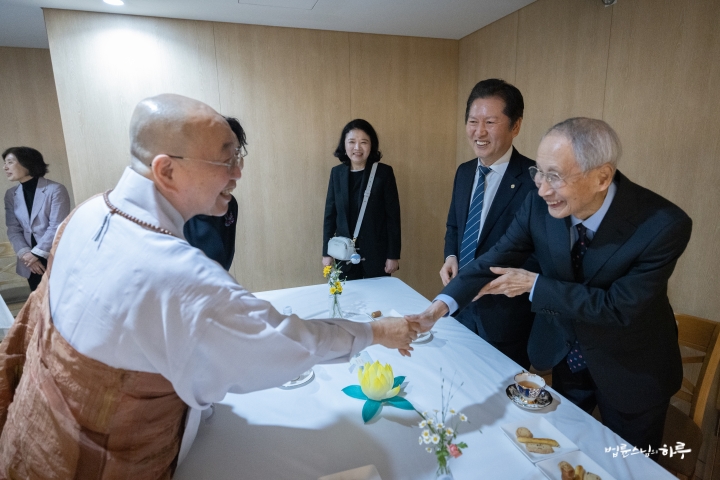
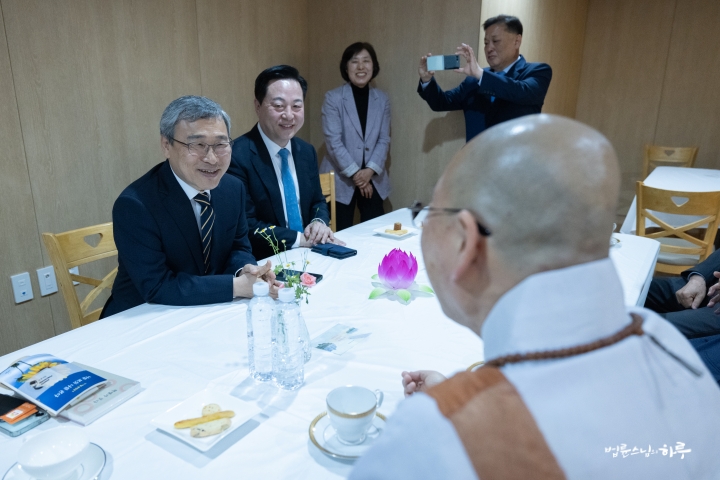
Sunim shook hands with each person and greeted them warmly.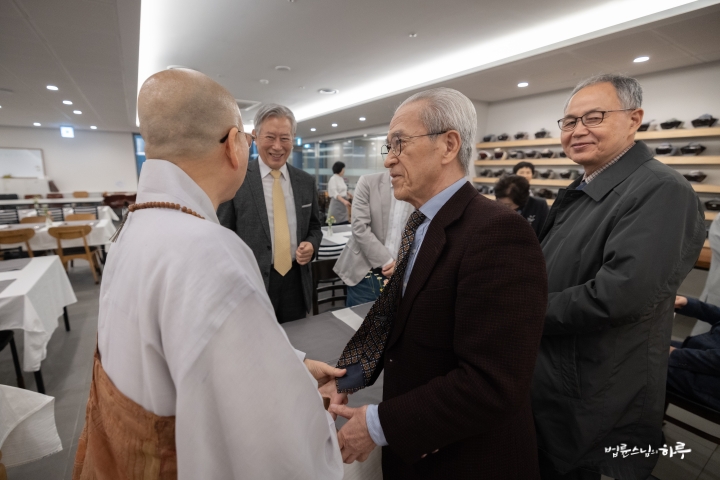
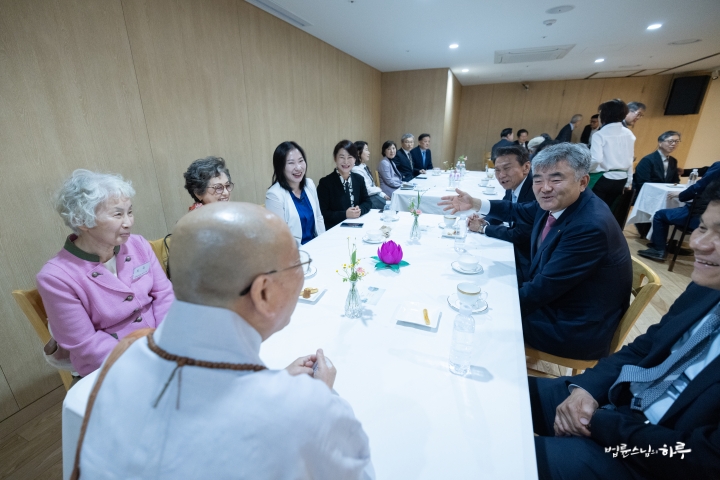
After exchanging greetings and engaging in conversation, everyone moved together to the basement main hall where the Dharma ceremony would be held at 3 PM.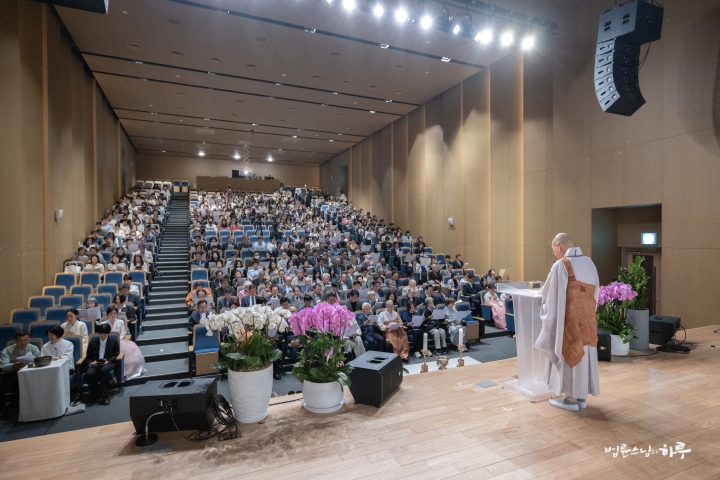
In the front row sat leaders from neighboring religions, including pastors, spiritual directors, and ministers, followed by social elders, politicians, and cultural artists.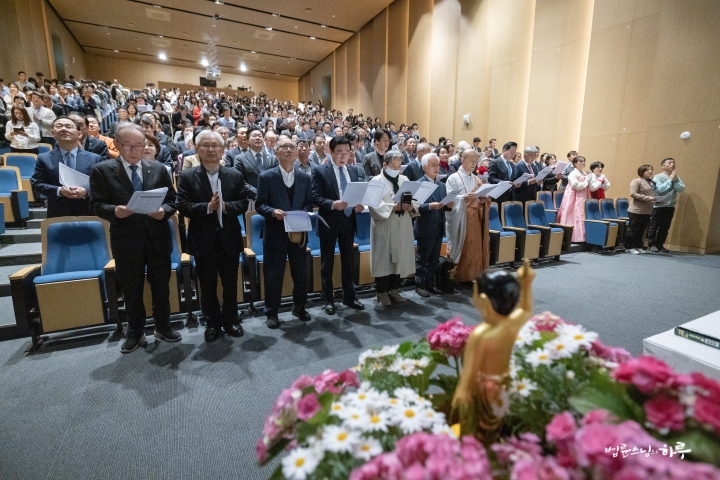
Everyone recited the Three Refuges and Words for Practice, then read together the Birth Praise depicting Buddha’s birth.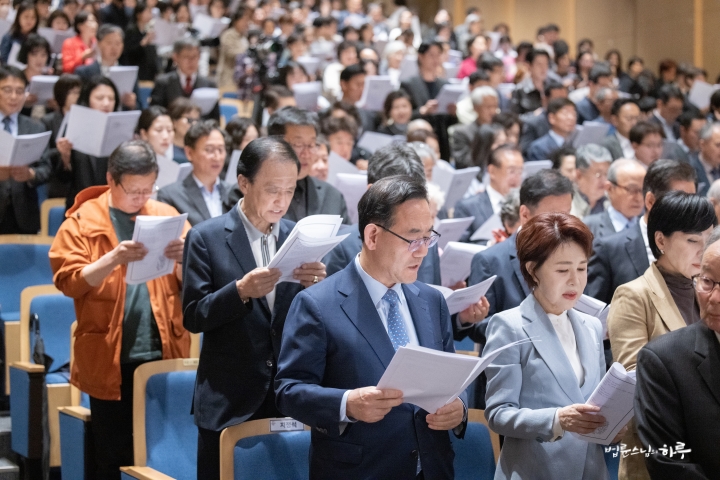
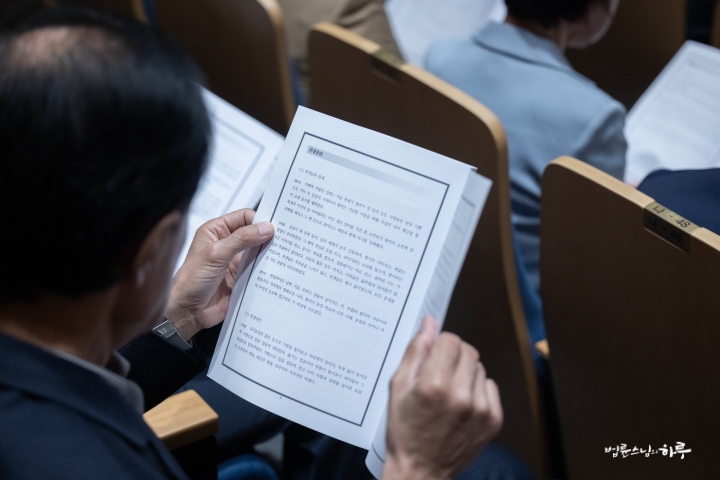
“When the Bodhisattva entered the womb, ten thousand worlds trembled, filled with fragrance, and infinite light pervaded everything. At that time, the blind could see, the deaf could hear, the mute could speak to each other, the hunchbacked straightened their backs, the lame could walk properly, and those in bondage were freed from their chains and shackles. The fires of hell were extinguished, hungry ghosts no longer suffered from hunger and thirst, animals felt no fear, beings were free from illness, and all beings spoke kindly to one another…”
Next, religious leaders including spiritual directors and ministers came forward to offer lanterns to the Buddha.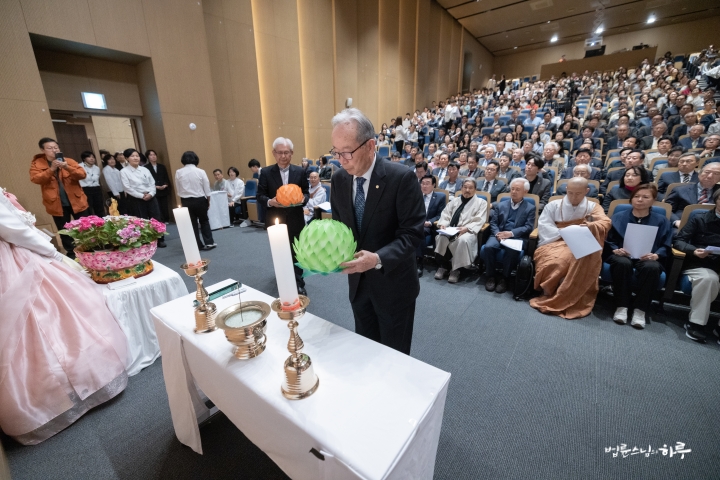
Then all attendees participated in the bathing ceremony. Despite differences in religion, political views, and occupations, everyone united in heart today to engrave the true meaning of Buddha’s coming into this world.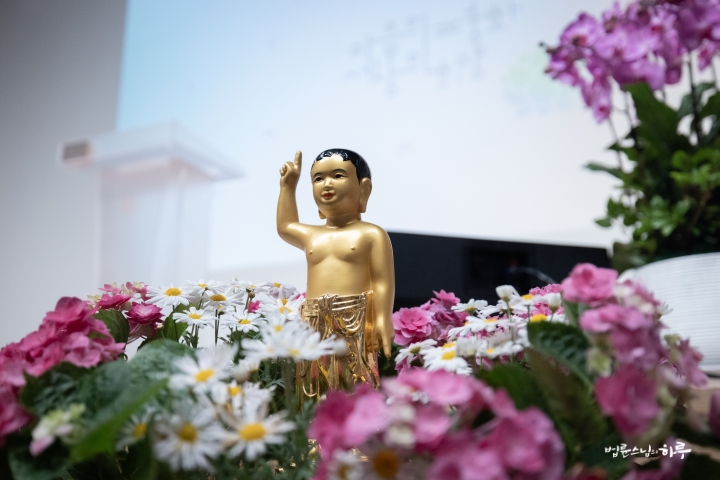
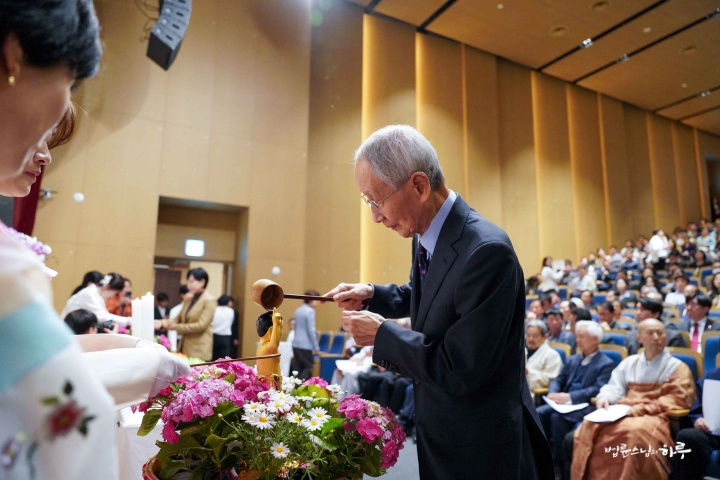
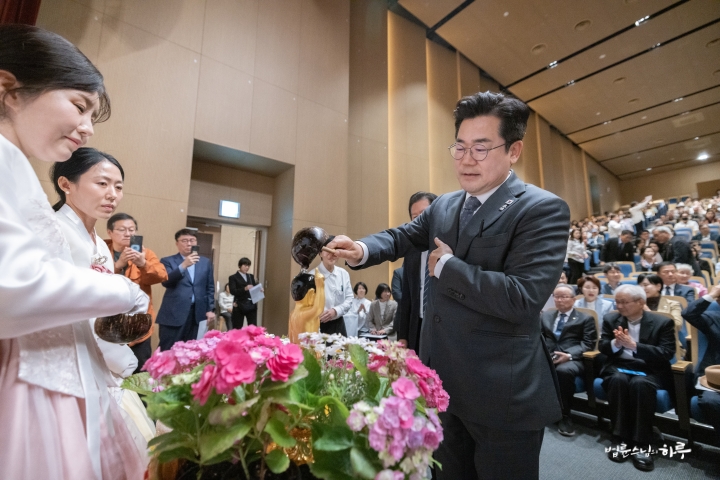
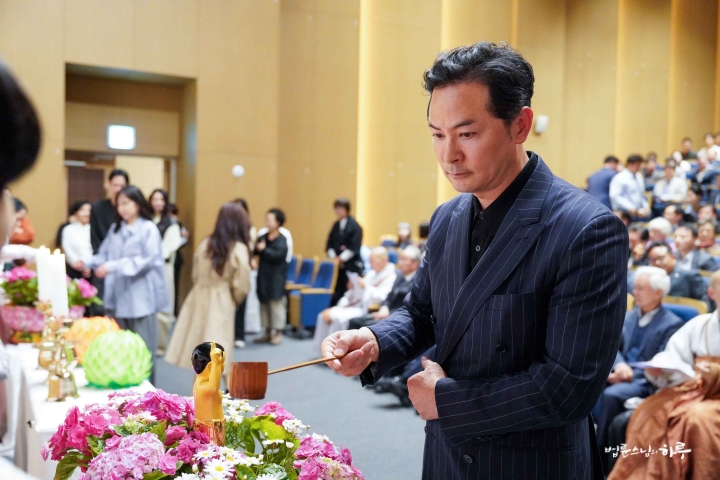
Following this, everyone recited the aspiration prayer led by Venerable Pomnyun Sunim.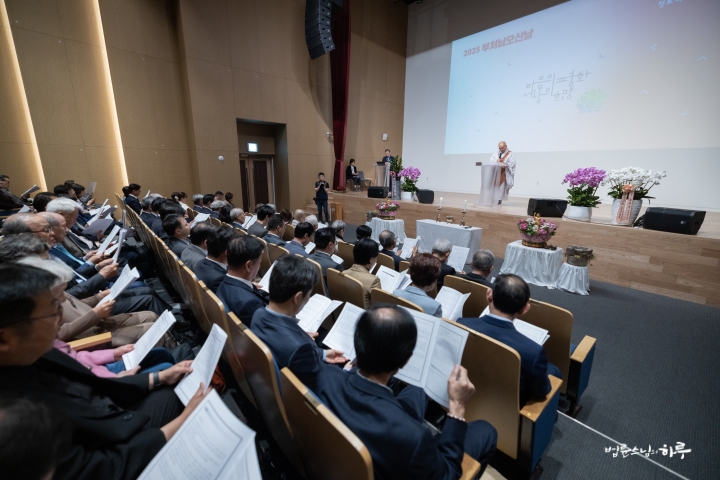
“Today is Buddha’s Birthday. Buddha represents bright wisdom. Wisdom, like a lamp that illuminates darkness, awakens ignorance and liberates beings from suffering. When my mind is enlightened, I am Buddha; when my mind is ignorant, I am an ordinary being. Today is the day when all suffering beings awaken from their ignorance and become Buddhas. Although countless people suffer in this world, our eyes were dim and we could not see their suffering. But today, illuminated by the lamp of wisdom that Buddha lit, we can see the suffering beings around us and hear their groans. We commit to more actively participating in alleviating the suffering of hungry people, sick people, children without education, refugees, separated families, and all those discriminated against for being minorities, of lower class, dark-skinned, female, or disabled. May peace come to all people suffering from war and natural disasters around the world, may humanitarian aid be provided, and may innocent lives be protected from further sacrifice. 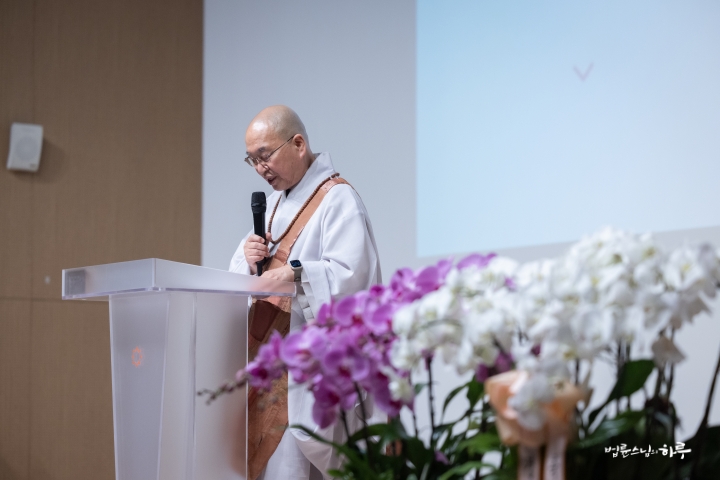
I especially pray for this. Our society is currently concerned that social conflicts are intensifying and even risking civil unrest. May we abandon the obstinacy of believing only we are right, acknowledge and understand our differences, and find a path of coexistence through cooperation. Also, as tensions have escalated on the Korean Peninsula, may North Korea’s nuclear program be frozen and relations between North Korea and the United States be normalized, so that peace can be established without war ever occurring again, allowing all people in both South and North to live peacefully.
Venerable Buddha, through the merit of this prayer, may all who participate in today’s Buddha’s Birthday celebration awaken from their ignorance to become people without suffering, free people who live as bodhisattvas, serving as lights for their neighbors and the world!
Namu Shakyamuni Buddha, Namu Shakyamuni Buddha, Namu Shiabonsa Shakyamuni Buddha.” 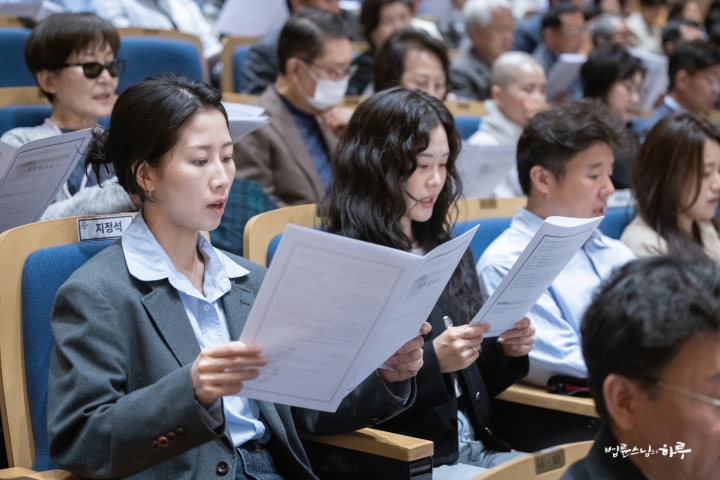
Sunim prayed for a path of coexistence to open for all people. Then he gave his greeting remarks.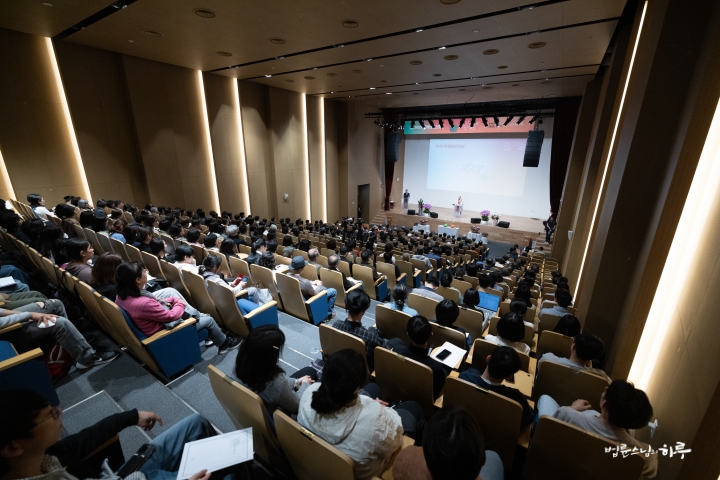
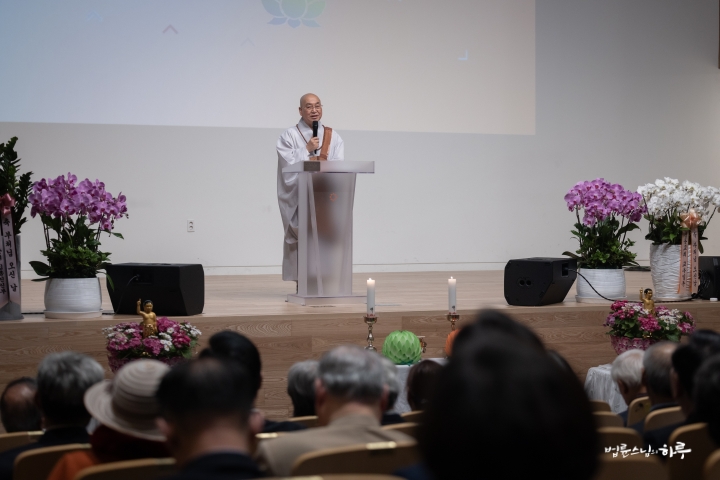
“Buddha’s Birthday comes every May, making it a wonderful season. This morning, a pastor said in his congratulatory remarks, ‘Last Christmas, we couldn’t celebrate energetically because of the unsettled social atmosphere, but now many social issues have been somewhat resolved, so it’s fortunate that we can smile brightly on Buddha’s Birthday.’ His comment drew warm laughter from the Jungto Society members.
Why We Need to Create Minimal Agreement Through Dialogue
However, our society still has many accumulated difficulties, both large and small. Even when there are differences in opinion, it is most desirable to acknowledge and understand each other through dialogue whenever possible, and to resolve problems rationally and peacefully. That is the path Buddha taught us. 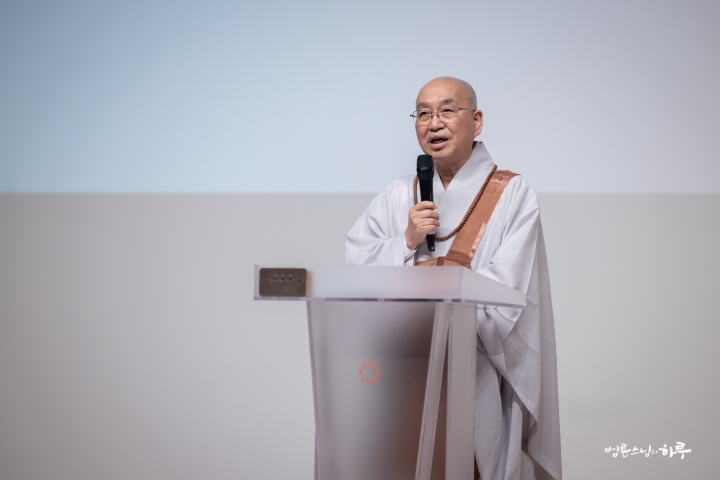
When dialogue fails, should we resort to force? No. We have laws as social contracts. We must respect and accept judgments made from a third-party perspective according to these laws. Of course, you might disagree with these judgments or feel they are unfair. However, if we refuse to accept even these judgments, society as a whole could fall into greater chaos. Therefore, we all must uphold the social promises we have made together—the Constitution and laws of the Republic of Korea. 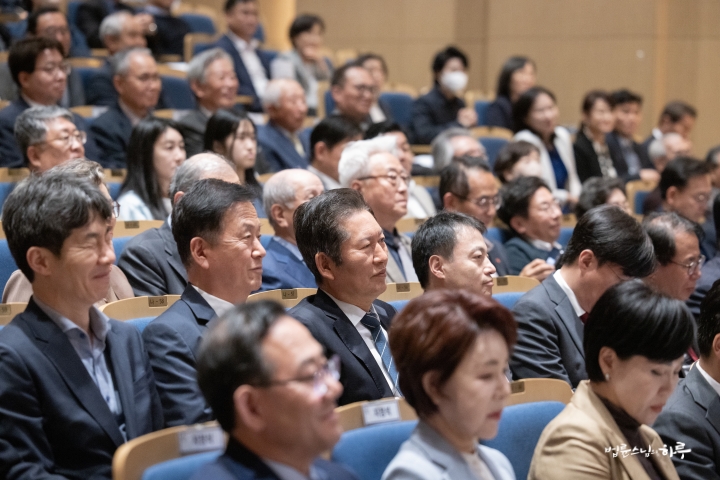
The current international order is in great turmoil. It is difficult for our country to survive alone in the massive whirlpool of the US-China hegemonic competition. Realistically, there is not much we can do. That is why we must cooperate with Japan for the future, even though they were once our mortal enemies. Also, to prevent war on the Korean Peninsula, we must engage in dialogue and negotiations with North Korea, which started the Korean War. However, if we can’t even talk to one another within South Korea —under the same constitution and laws— because of our differing views, beliefs, or interests, how can we possibly maintain dialogue between North and South Korea or diplomacy between Korea and Japan? When dialogue stalls, bringing up the past repeatedly only makes conversation more difficult. This is not about forgetting the past. Rather, if we stay stuck in the past, it’s hard to build hope or work together for the future. While remembering past events and preparing for risks, it is desirable to maintain a future-oriented attitude in dialogue, considering what kind of relationship would be more beneficial moving forward. Our society contains diverse positions. There are different political parties, religions, and ideologies. Nevertheless, if we create minimal points of agreement through dialogue, I believe we can overcome this crisis. 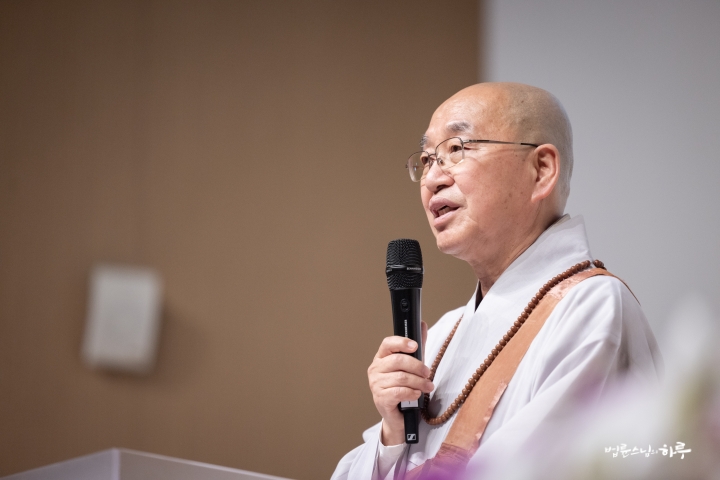
Quarreling Is a Greater Problem Than Minor Precept Violations
There is a story from the Buddha’s time related to this issue. In the city of Kosambi, two bhikkhus had a conflict over the interpretation of a precept regarding bathroom use. This seemingly trivial matter gradually escalated into opposition among disciples and eventually led to division within the entire Sangha. The Buddha summoned both sides and spoke about their dispute.
“Breaking a rule is minor, and pointing it out is minor too. The real serious issue is that you are fighting like this and dividing the Sangha.”
We sometimes make the mistake of trying to correct small problems only to cause greater losses. When we are swayed by emotions, we lose perspective, and ultimately everyone suffers. I believe the current reality is not much different. When politicians and their supporters become too attached to their own small interests, they put the well-being of the nation and its people at serious risk. Of course, when I hear their perspectives, I can understand their reasoning. I sometimes find myself nodding in agreement. However, dialogue always involves another party. When we consider the other’s position while working through problems, first, peace becomes possible, and second, coexistence becomes achievable. On this Buddha’s Birthday, I hope we can reflect on these points together. 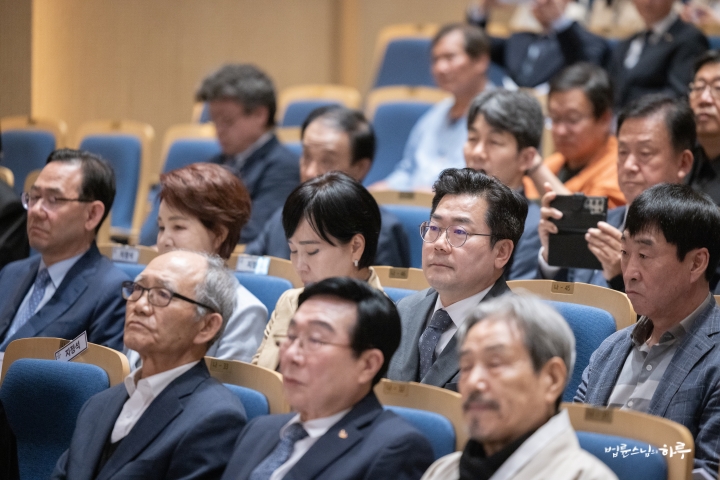
May We Open Our Eyes of Wisdom, Even Just a Little
Buddha guided us to open our eyes of wisdom so that we would not suffer losses and regret due to ignorance. On this Buddha’s Birthday, I hope that we can all open our eyes of wisdom, even if just a little. 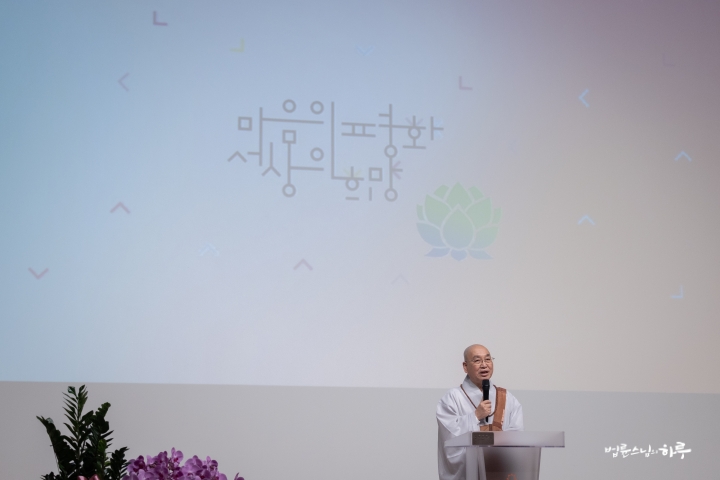
I deeply thank the senior members of society who have made the effort to join us today despite their age. I also sincerely thank the politicians who have attended this gathering despite their busy schedules during this election season. Furthermore, I extend my gratitude to civic organizations and leaders from various sectors who are working diligently in areas such as democratization of Korean society, overcoming environmental crises, peace between North and South Korea, and relief activities for those in need. I also thank the actors and writers who actively participate in these efforts. Although I cannot mention everyone by name, I would like to take this opportunity to bow my head in gratitude. 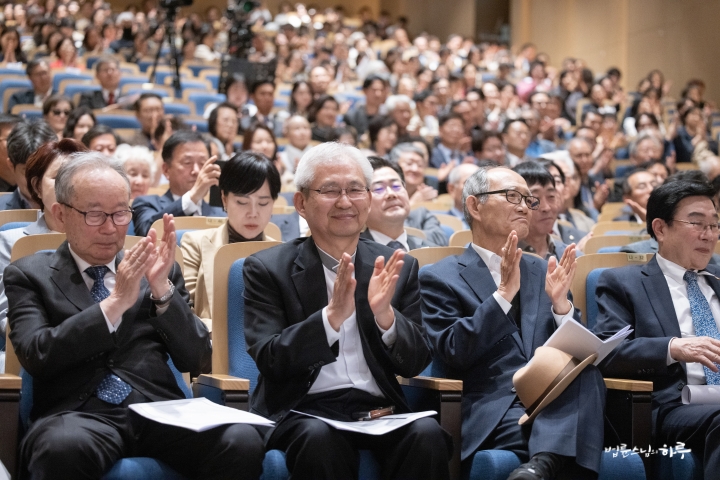
Next, everyone watched video messages from religious leaders who could not attend but had sent their congratulatory remarks in advance. Each message reflected the spirit of interfaith harmony.
Following this, Park Nam-soo, former head of Cheondogyo, delivered a congratulatory speech representing neighboring religions.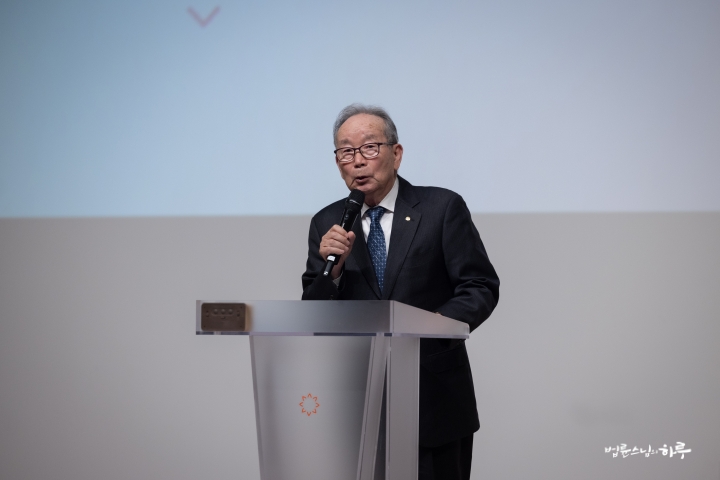
“The world is currently facing serious crises. We see the ongoing tragedy of Israel’s invasion of Palestine, Myanmar suffering under military coup, Ukraine enduring hardship from Russia’s invasion, and now an era where the U.S. President is disrupting the long-established free trade order. Amid these turbulent international circumstances, it is also an important task for South Korea to show the world how we overcome these crises.
Our country has somewhat overcome its political crisis. However, the voices of discrimination and hatred that have emerged like mutations have only just surfaced. Therefore, on this Buddha’s Birthday, beyond simple celebration, it would be good to reflect once again on the teachings of Buddhism that sought to overcome the world’s suffering through truth.”
Next, Professor Kim Hong-tae, an elder at Kyungdong Church, came on stage and shared some words before singing.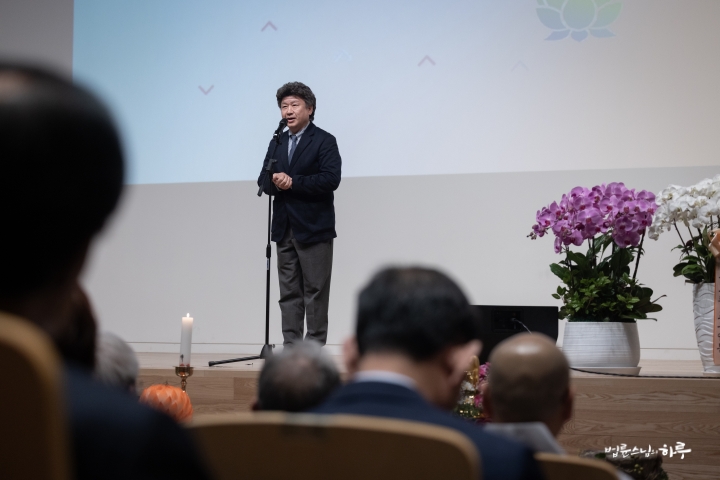
“Kyungdong Church is celebrating its 80th anniversary this year. For our first meaningful event, we invited Venerable Pomnyun Sunim, and all our church members were deeply moved by his dharma talk. Even though it lasted more than 90 minutes, the time flew by for everyone. Sunim visited our church on Easter afternoon and, based on biblical teachings, rekindled the original spirit of Kyungdong Church in the hearts of our members. Since that day, there’s been a rumor circulating in our church: ‘We should make Venerable Pomnyun Sunim an honorary head elder!’ If we’re not careful, you might see ‘Evangelist Pomnyun’ with long hair, wearing a suit and carrying a Bible. So Jungto Society members, please take good care of Sunim.” (Laughter)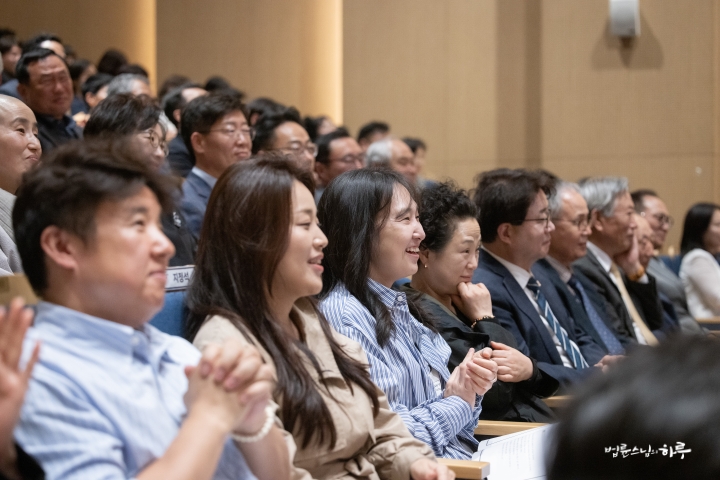
The professor beautifully sang the art song “Longing for Diamond Mountain” before leaving the stage.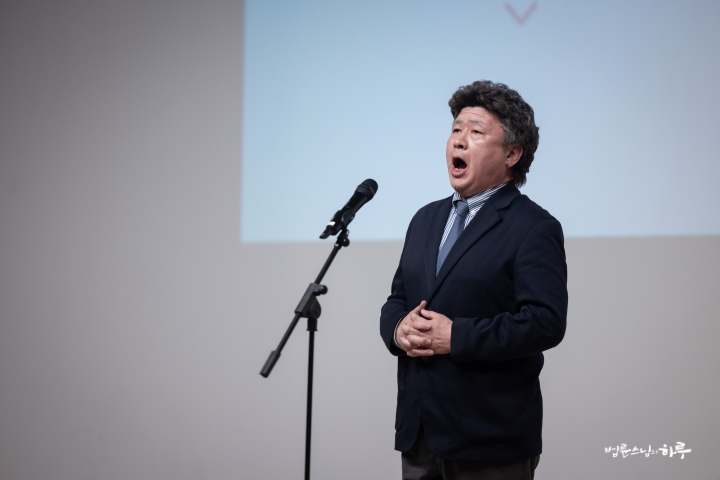
Next, writer Kim Hong-shin delivered a congratulatory speech representing senior members of society.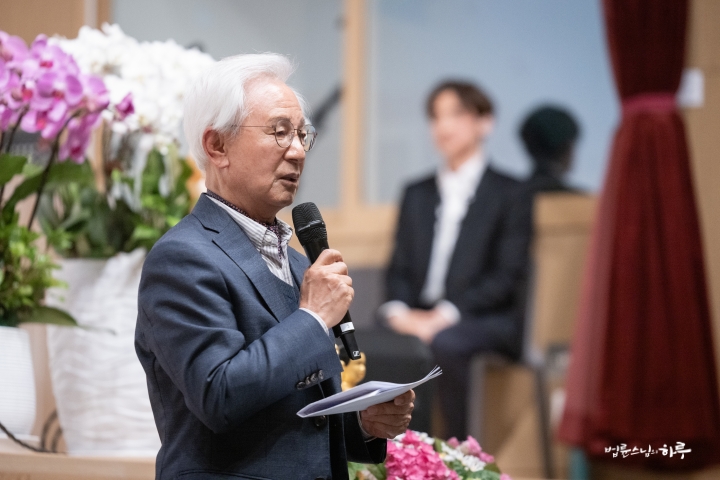
“In this world, there are names that are never forgotten, and there are names we’d rather forget—names remembered for their mistakes and misdeeds. In human history, there are great sages like Buddha whom we can never forget, while in our society today, there are many individuals whose mistakes and faults must be recorded and held accountable. This is why Buddha’s teachings feel even more precious, and why we cannot help but praise Buddha. I hope that all distinguished guests here today will live lives like Buddha’s teachings, so that when someone calls your name, it brings joy and comfort to others. May you be free from suffering, liberated, and in good health.”
Next, Ms. Jang Moon-hee performed on the geomungo (Korean zither). Ms. Jang, who went through the Happiness School and is now active as a Happiness Citizen, performed ‘Chulgang,’ a geomungo piece from North Korea. The audience listened to the performance with tender hearts, hoping for the day when unification would come.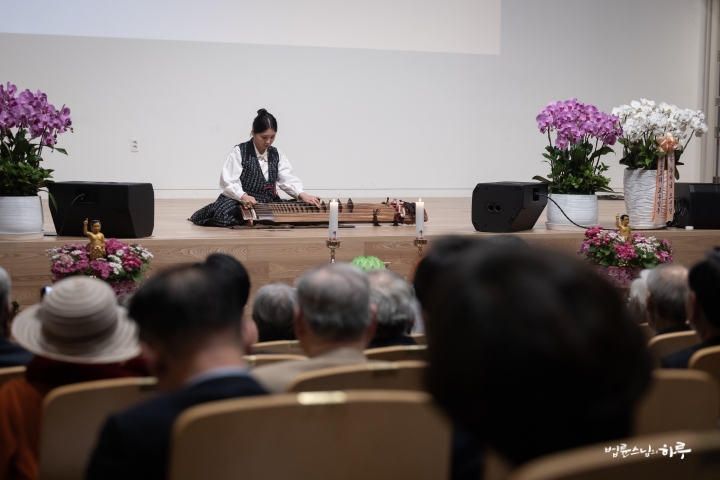
Next, Representative Joo Ho-young, Deputy Speaker of the National Assembly from the People Power Party, gave a congratulatory speech on behalf of politicians.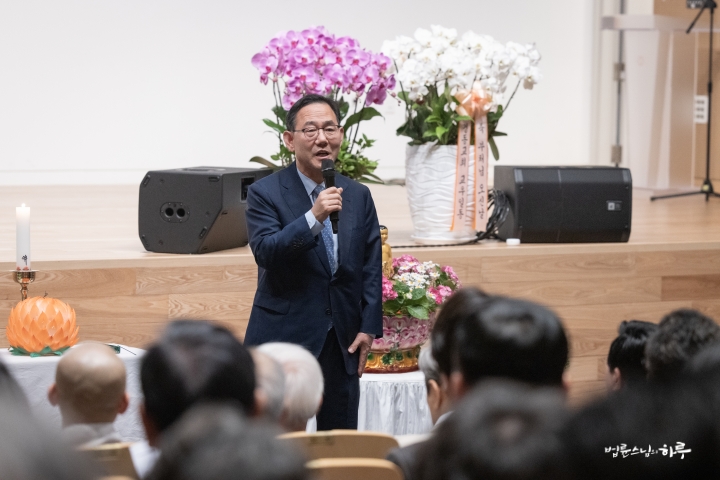
“Many National Assembly members have joined us here today. Whether it’s a nation, society, or individual, if we stay true to our essence and don’t stray onto strange paths, we will surely prosper and receive blessings. If Korean Buddhism continues to practice like Jungto Society and Venerable Pomnyun Sunim, it will gain more support from the public, and a true Pure Land will come closer to this earth. I would like to take this opportunity to express my deep gratitude to Venerable Pomnyun Sunim and all Jungto Society members. As those involved in politics, we pledge to make more effort and reflect on ourselves so that we don’t deviate from our essence and aren’t turned away by the people.”
Following this, Representative Jung Dong-young, Standing Advisor to the Democratic Party, gave a congratulatory speech. He introduced himself as a politician who had attended the Awakening Retreat, which earned him a big round of applause.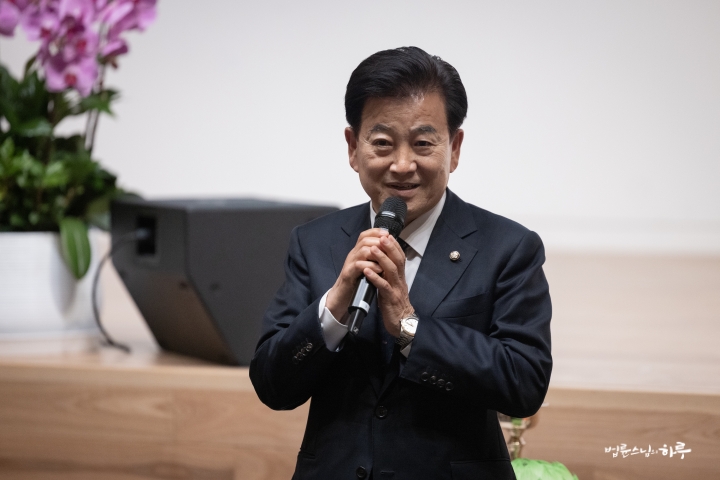
“The reason I visit Jungto Society every Buddha’s Birthday is not only because of my long relationship with Venerable Pomnyun Sunim but also because I feel most at ease here. Jungto Society is truly a Pure Land as its name suggests. Here, there are progressives and conservatives, ruling and opposition politicians, but strangely, I find it easy to communicate with politicians I meet at Jungto Society. We can have perfectly normal conversations. Yet I wonder why outside, there are so many abnormal things happening and why communication is so difficult. So I think the way for Korean politics to revive is to have all National Assembly members join Jungto Society! I am also a graduate of the Awakening Retreat. Even though it’s May, the unrest in society still hasn’t settled. I sincerely hope that in June, the world will become a little brighter, and hope will sprout again in a new order.”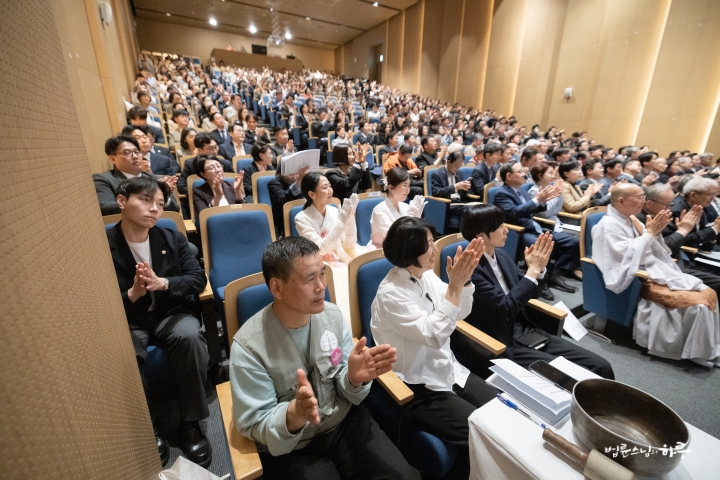
Next, singer Maya energetically performed “Calling Myself.” Maya introduced herself as a Jungto Society member who had graduated from both the Jungto Buddhism Course and the Sutra Course, which earned her a big round of applause.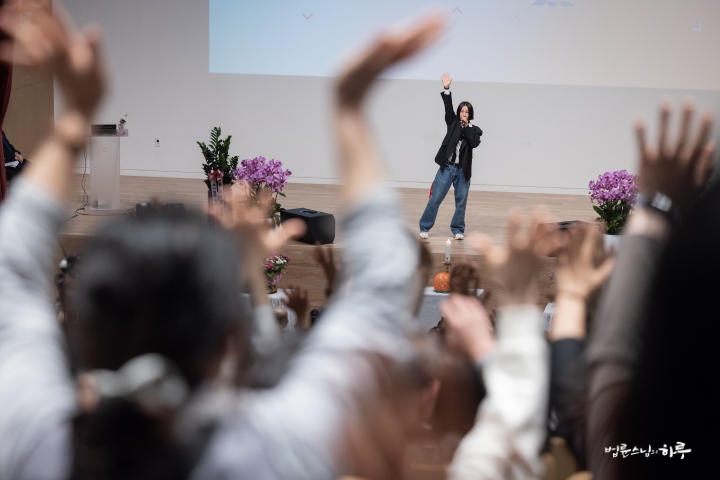
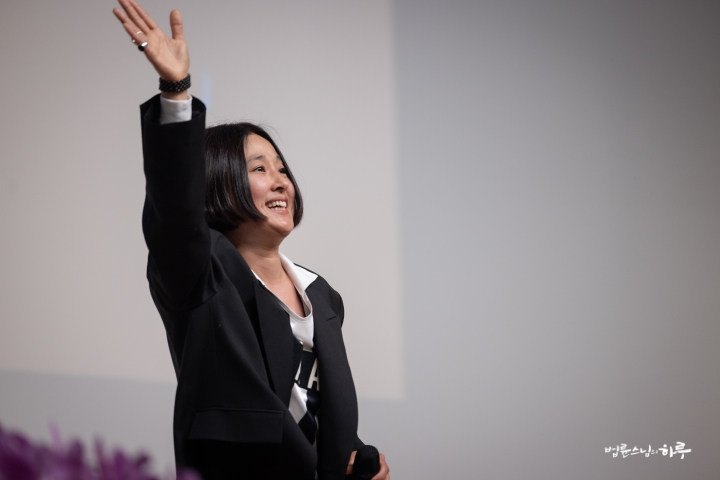
Finally, screenwriter Noh Hee-kyung delivered a congratulatory speech representing the broadcasting and entertainment industry.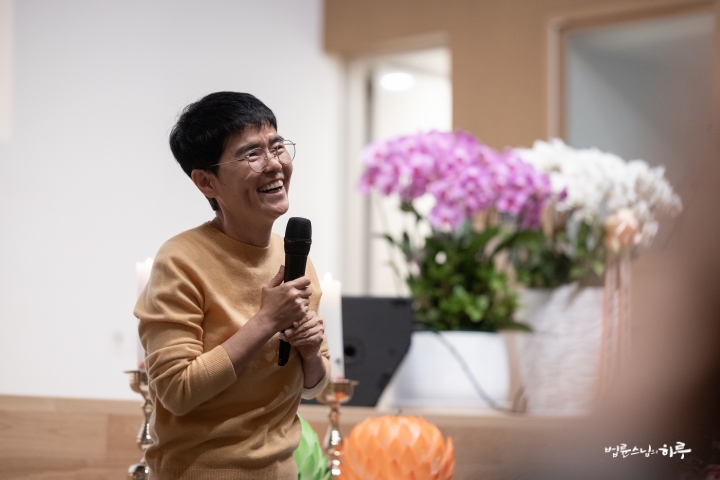
“Buddha’s Birthday is truly wonderful. Our ‘Gilbut’ group may be called entertainers outside, but here we serve the world in a meaningful way, which is also wonderful. I will not live well alone. We will all live well together. I sincerely pray for peace in our country.”
Although everyone in attendance was distinguished enough to give valuable remarks, the ceremony had to conclude within the limited time. After taking a commemorative photo together, the Dharma assembly came to an end.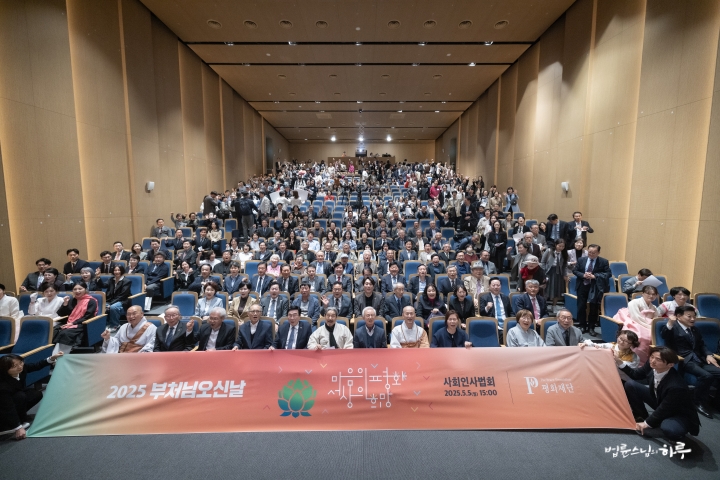
Everyone moved to the dining hall for dinner.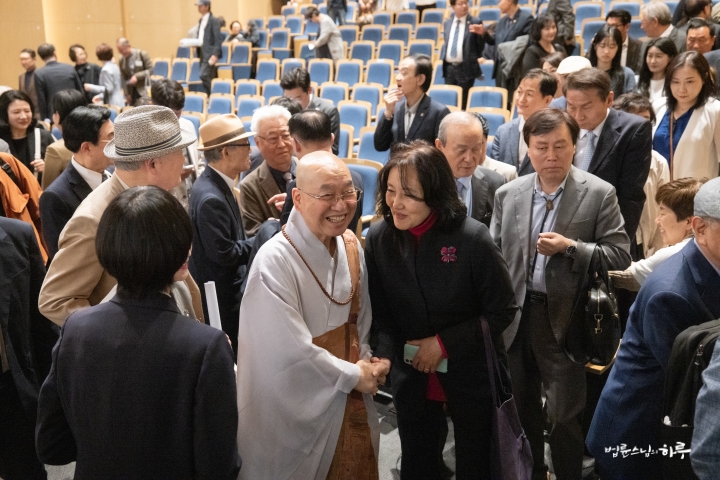
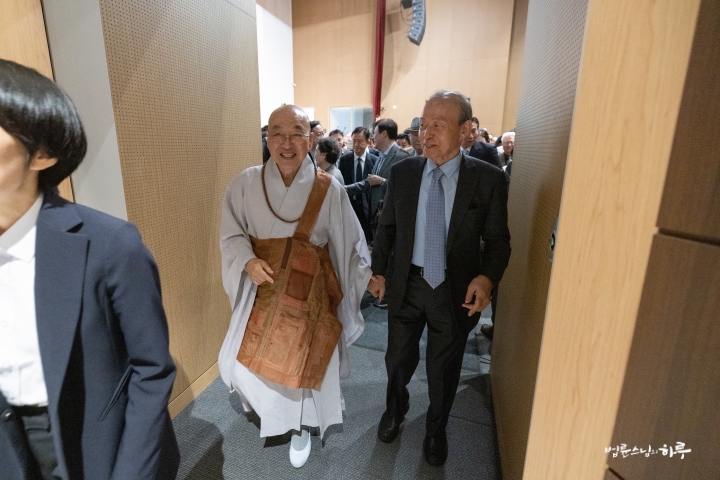
Sunim greeted each guest personally as he helped them to their seats. Without taking time to eat himself, he visited each table to express his gratitude to those who had attended despite their busy schedules.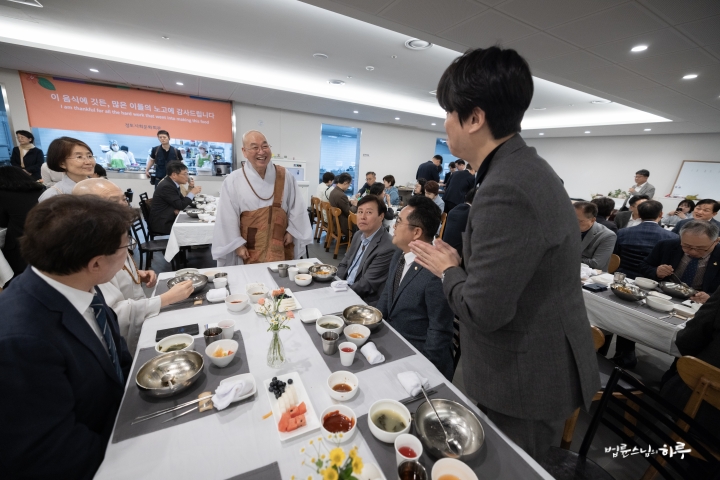
In particular, he met with members of both the People Power Party and the Democratic Party, urging them to work together harmoniously.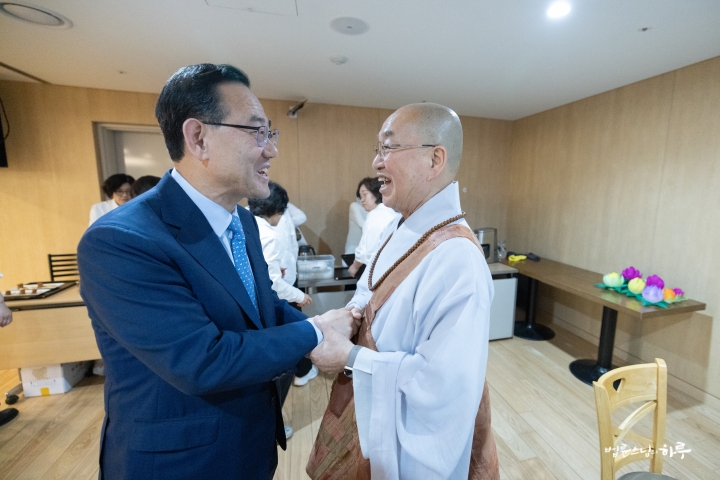
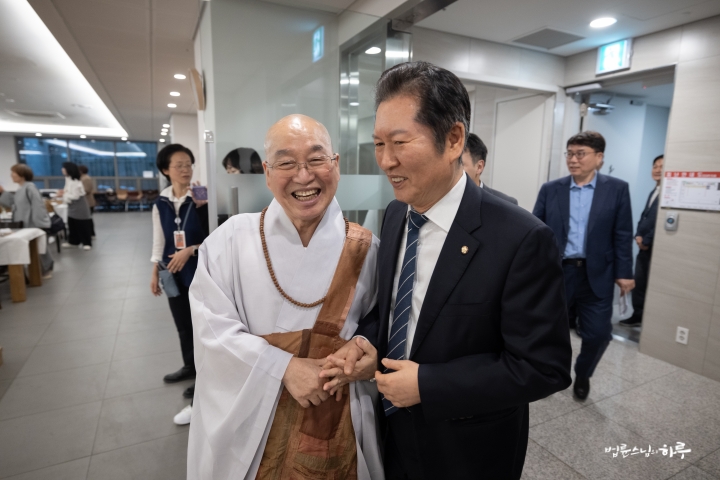
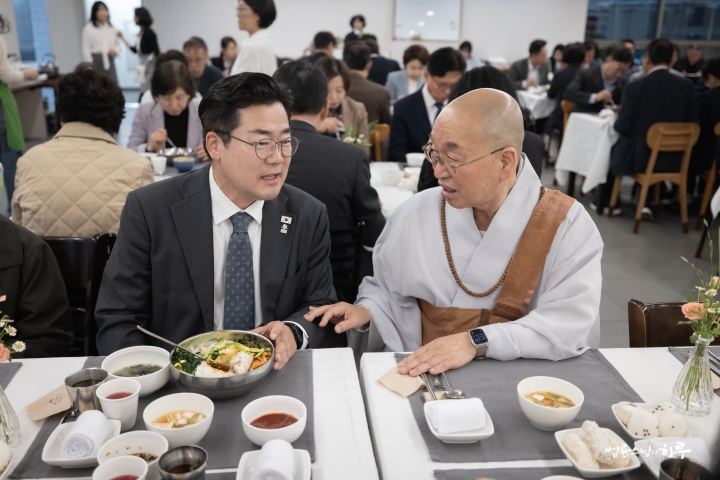
Representatives from both parties shook hands and shared a friendly moment in honor of Buddha’s Birthday. When it was time to leave for the airport, Sunim excused himself from the social gathering.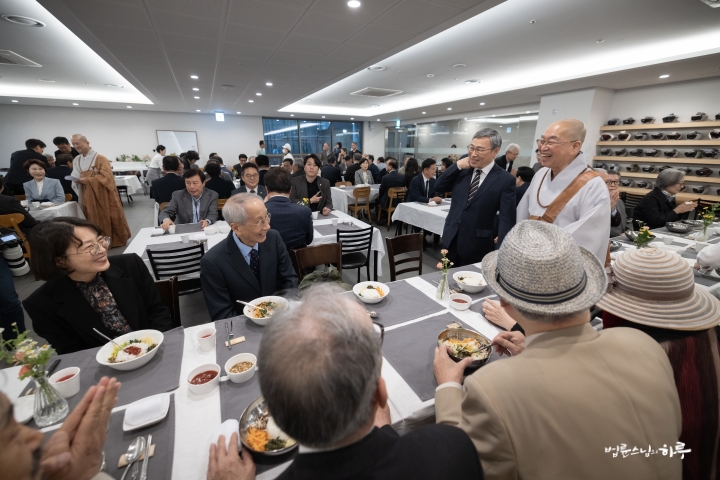
“I have been invited to the UN Day of Vesak by the Vietnamese Buddhist Sangha Council and will be flying out tonight. So I need to head to the airport now. Please continue your conversations and enjoy your time here.”
At 5:30 PM, Sunim left the Jungto Social and Cultural Center and headed directly to Incheon International Airport.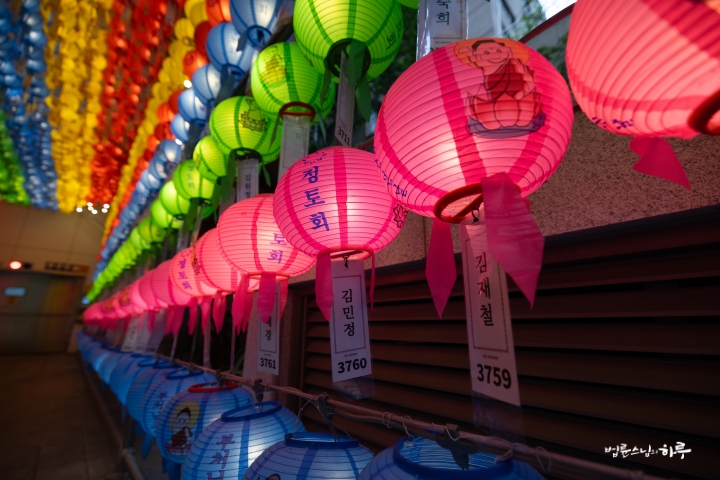
After an hour’s drive, Sunim arrived at Incheon Airport where he met with Roh Jae-guk, the representative of JTS Philippines, and boarded the plane together. The flight took off from Incheon Airport at 8:15 PM, 30 minutes later than scheduled.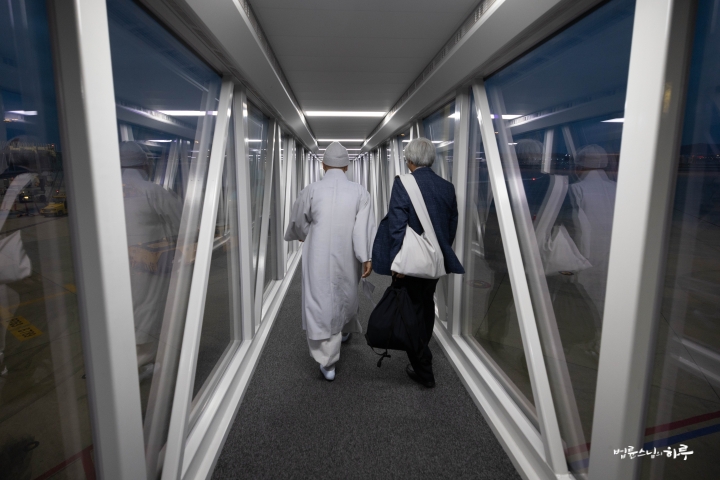
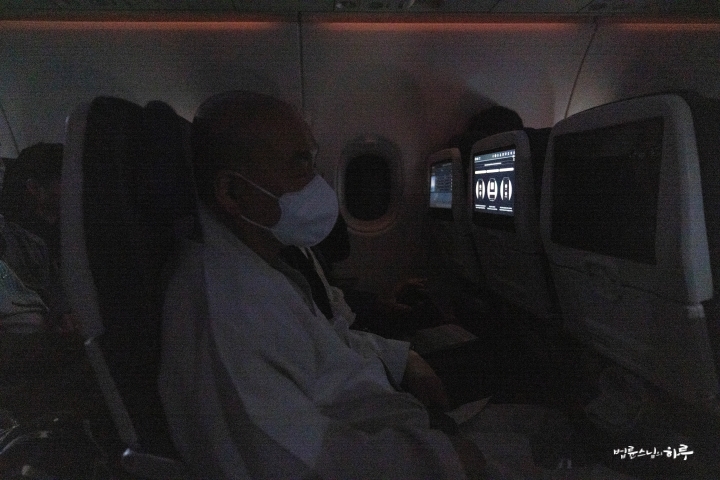
While Sunim was in deep sleep above the clouds, the plane flew for 5 hours and 30 minutes, landing at Tan Son Nhat International Airport at 11:30 PM local time in Vietnam.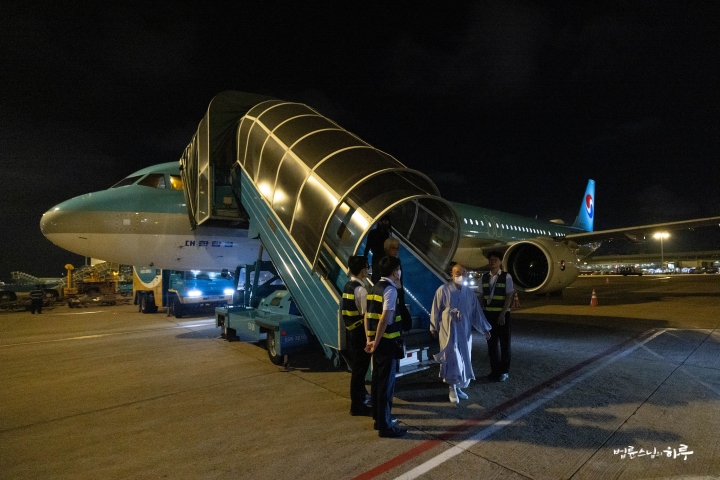
Upon disembarking, Sunim was warmly greeted by monks from the UN Day of Vesak preparation team.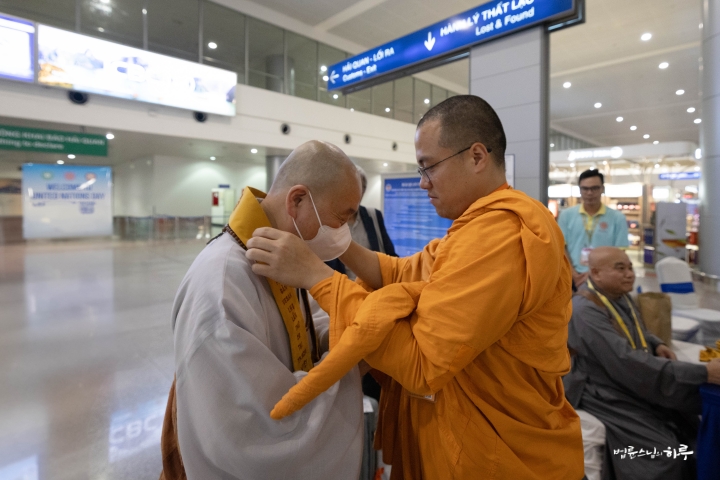
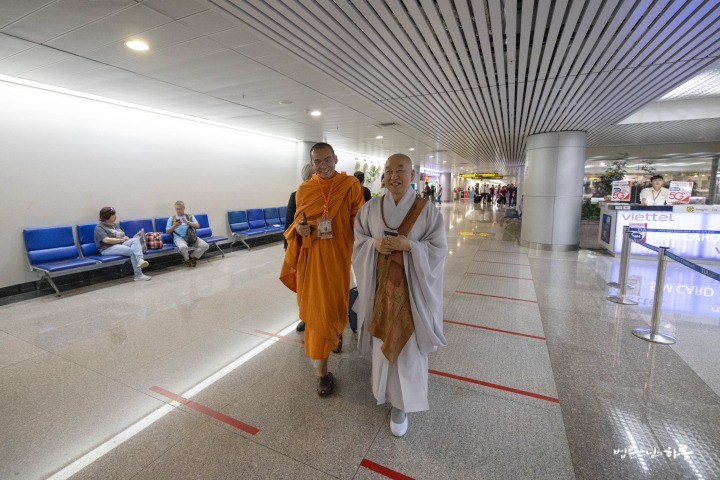
With the assistance of officials, Sunim quickly completed the immigration procedures and promptly exited the airport. Outside, the Asia branch president and Ho Chi Minh group facilitator welcomed him warmly.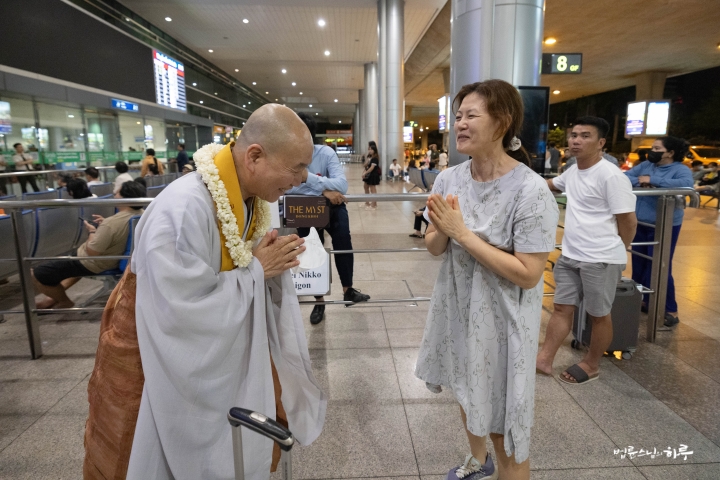
After exchanging greetings, Sunim traveled in the prepared vehicle for about 30 minutes to reach his accommodation. By the time he unpacked at his lodging, it was well past 1:30 AM.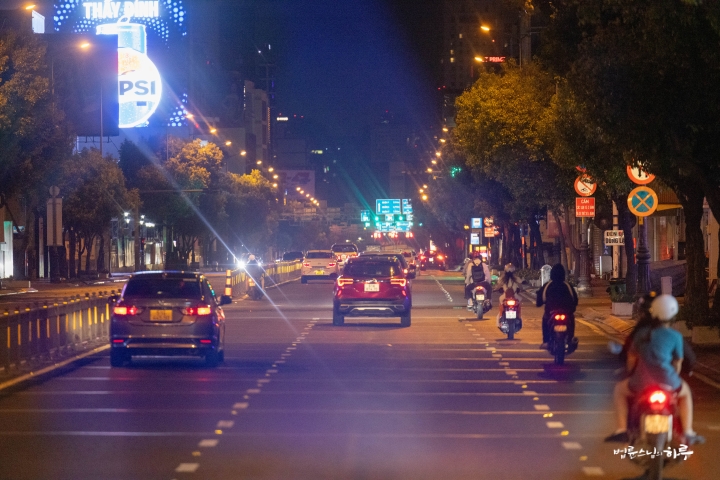
Sunim organized gifts for the dignitaries he would meet and edited his manuscript before finally getting a brief rest around 3 AM.
Tomorrow, he plans to wake up at 5 AM and participate in the UN Day of Vesak events throughout the day.




